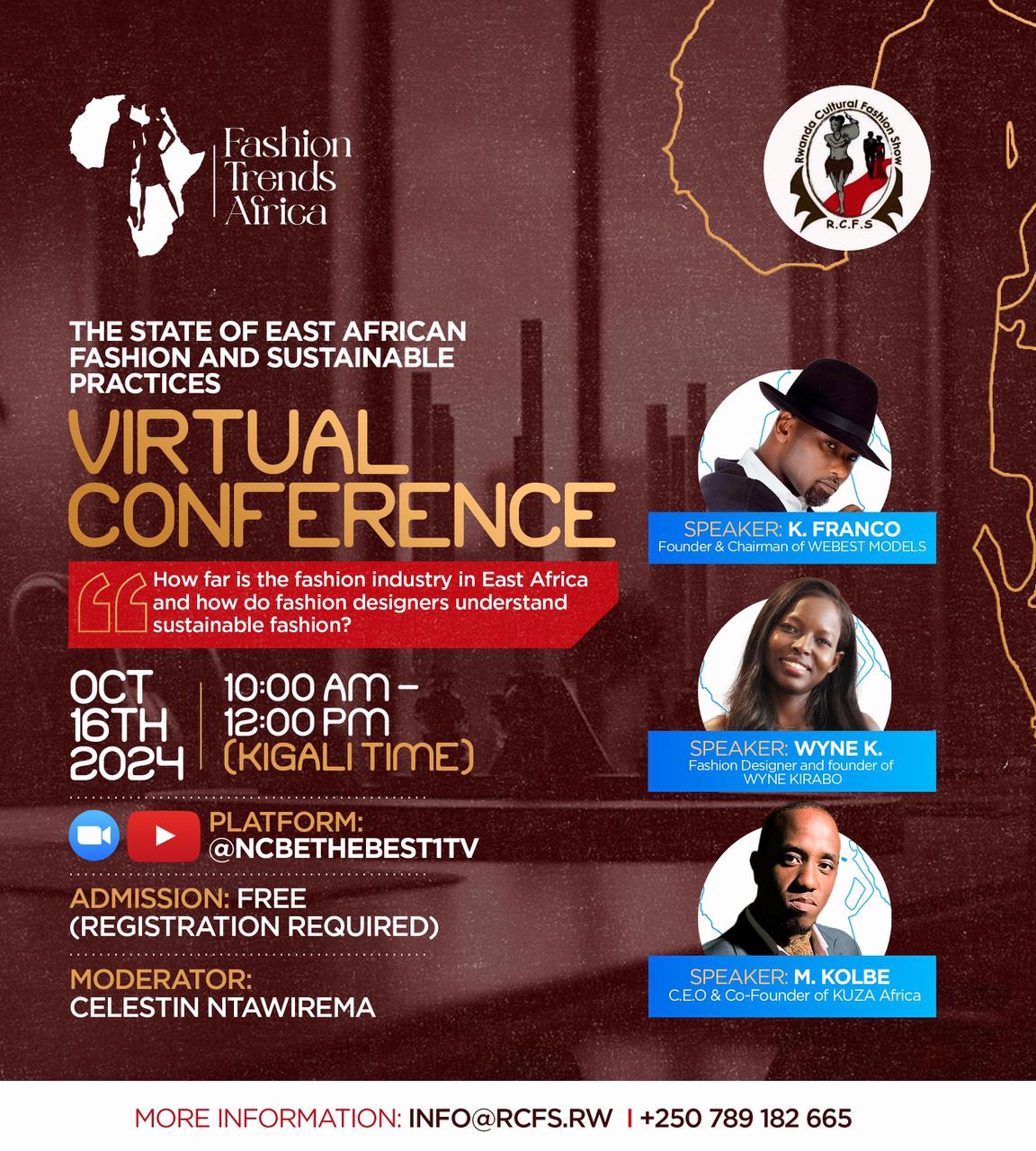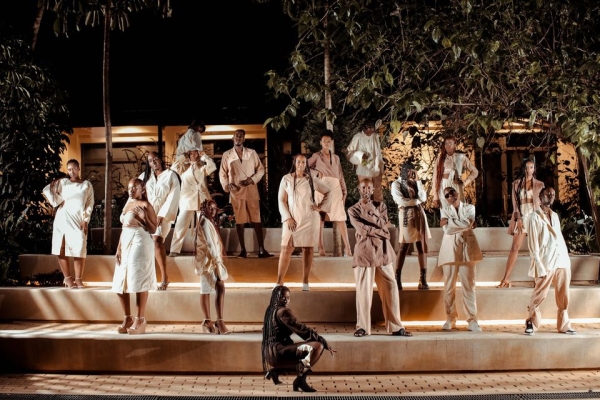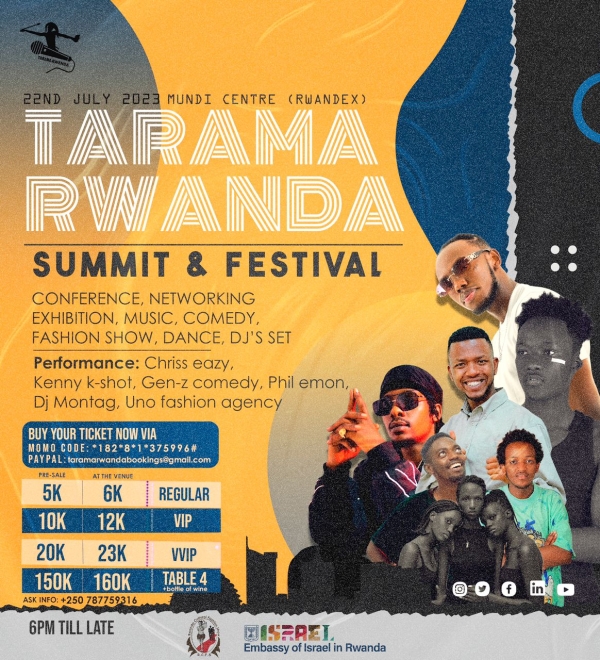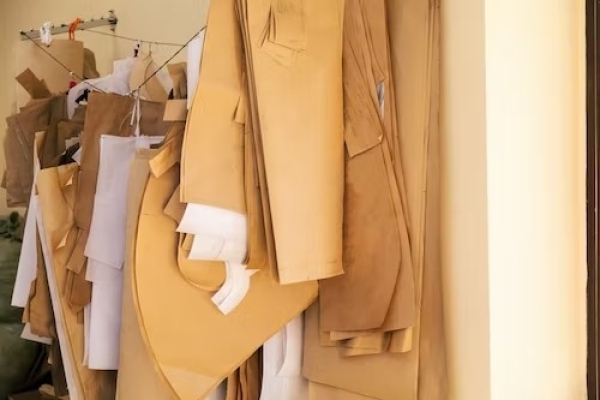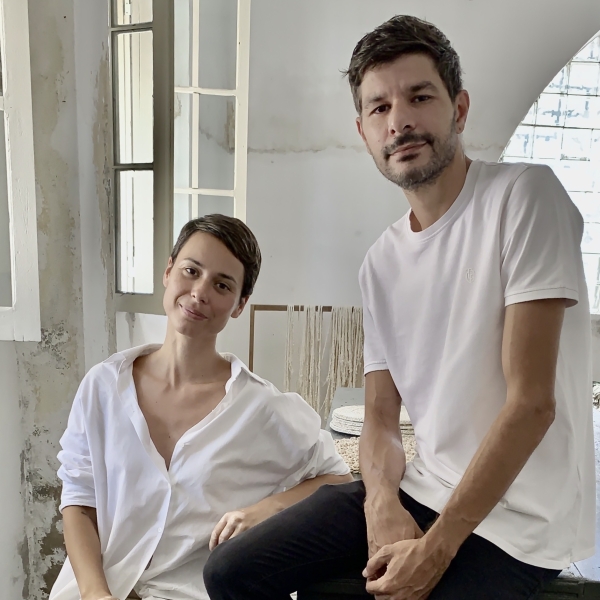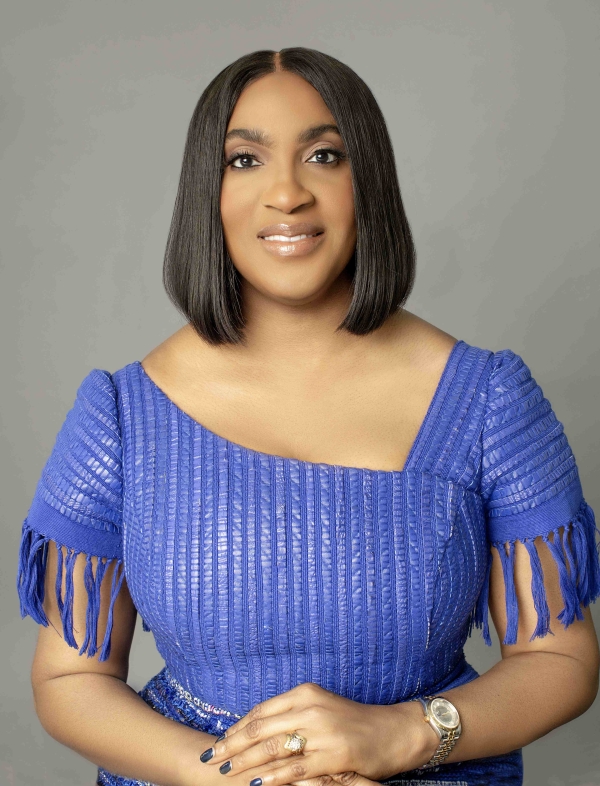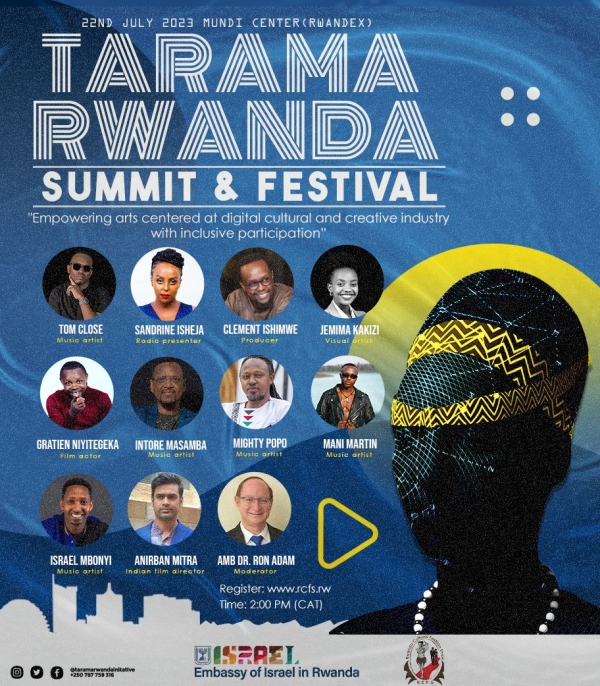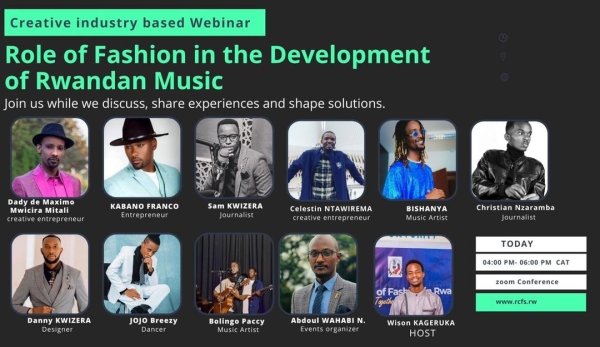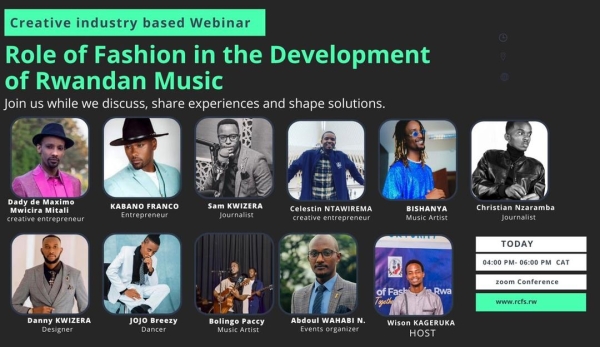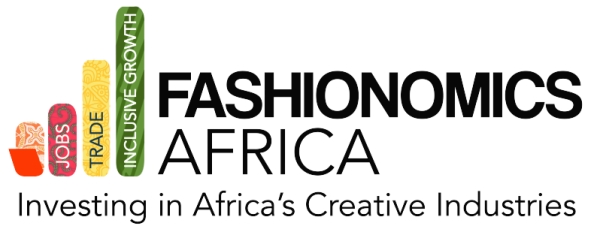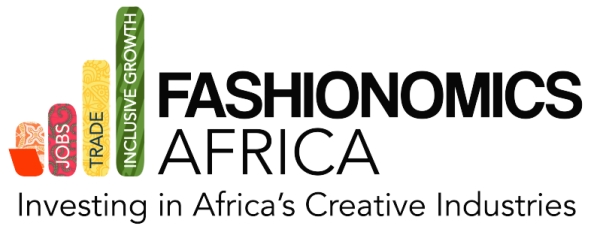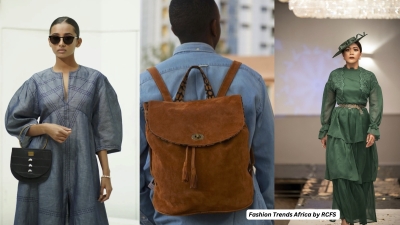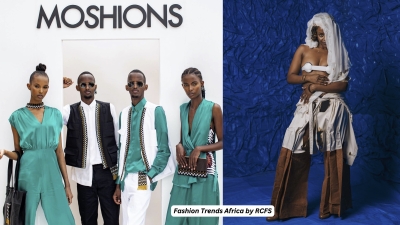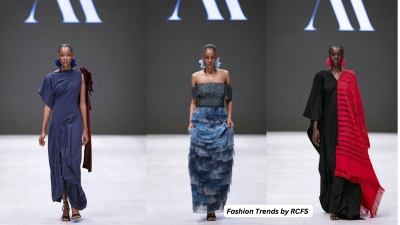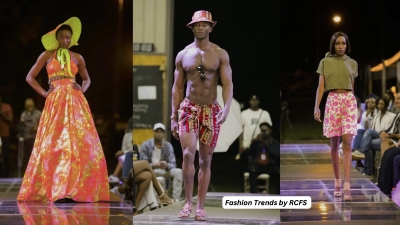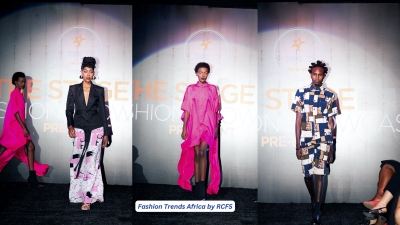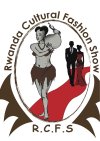
RCFS
Berabose Designs is one of the brands that made it as a finalist of the third edition of the Fashionomics Africa Contest. The United Nations Environment Programme (UNEP), which was part of the contest jury, expressed its delight in seeing a real increase in the quality of applications and noted that the three finalists are true testimonials of the bubbling textile scene on the African continent and the power that circular business models represent.
Berabose Designs has positioned itself at the forefront of the fashion technology revolution, by producing sustainable garments made by combining natural sustainable practices with 3D production modelling. In this week’s article we learn more about how Berabose Designs wowed the Fashionomics Africa Contest judges, through its unique business model, which is founded on sustainability, innovation, and inclusion.
About Berabose Designs
Berabose Designs is a Rwandan-based business founded by Elisabeth Berabose. It is focused on the production of innovative garments made from organic cotton, dyed with agricultural waste and plant-based dyes. Optimization of the fashion design process is a defining feature of how the sustainable brand operates. After successfully launching its ‘27’ collection, the brand recognized the need to meet unique consumer’s needs through custom clothing. However, traditional custom-made methods posed challenges such as multiple interactions, fittings, and fabric selection time, especially without proper infrastructure. In response to these problems, Berabose Designs developed a three-phased strategy that combines its expertise in 3D product modeling with cutting-edge technology. The process includes a digitized custom-making process that allows users to easily select fabric, style, color, and measurements online, and a digital fitting room where consumers can model their looks based on their body shape and measurements.
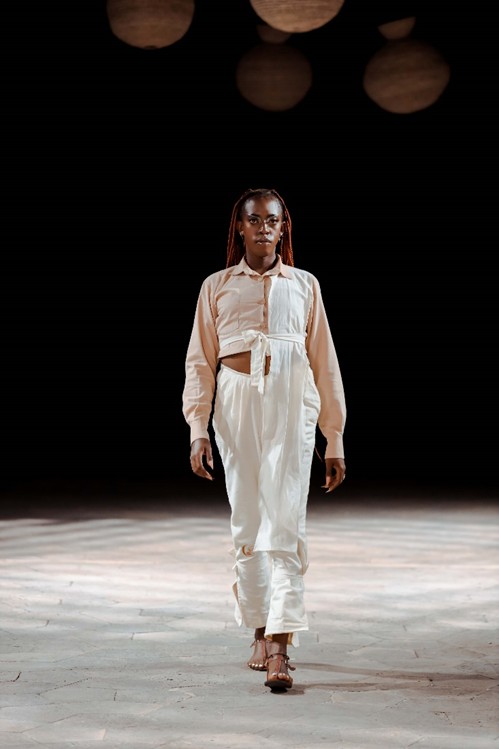 Dusabamahoro pants
Dusabamahoro pants
Development of this process was a leap of faith, in which Berabose took a chance on fashion technology which is practically non-existent, despite research that has shown its promise. Berabose Designs adopted use of fashion technologies that use algorithms to derive a shopper's 3D body shape using augmented reality to make personalized product recommendations. The technology adds value because it allows to measure its impact. It presents a higher conversion rate, average order value, and consumer loyalty, all of which increase Berabose Designs capacity for a bigger market. The brand’s digitization strategy has positioned Berabose as a pioneer for sustainable design solutions on the continent and globally.
“Fashion technology has the potential to revolutionize the industry, and we are proud to be at the forefront of this change.” - Elisabeth
In addition to the use of fashion technology, Berabose has adopted a number of sustainability practices in line with its ethos. For example, Berabose designs clothes with an average lifespan of three years – a move which is critical in reducing the environmental impact of the brand’s products. Furthermore, its use of organic dyes and cotton, ensures the biodegradability of the brand’s garments. Berabose has also implemented a program encouraging consumers to bring old clothing in for upcycling. These initiatives will help reduce the amount of clothing waste produced by approximately 30% over the next three years. The brand is also intentional about avoiding prints and patterns, so as to discourage trends and consequently fast fashion.
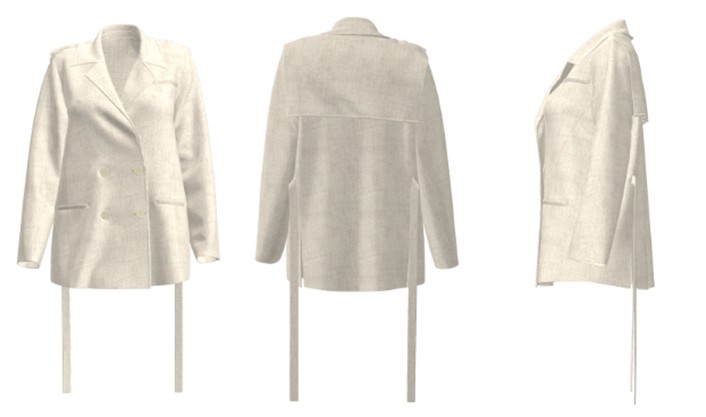 Gordon blazer
Gordon blazer
The cotton used in the production of Berabose’s designs is sourced from a cooperative in Tanzania. After sourcing, Berabose collaborates with local facilities in Rwanda for spinning and weaving. By working with local sustainable partners, they save gallons of water and reduce energy use. Additionally, they collaborate with Handspun Hope for the dyeing of the clothes, using plant-based dyes and agricultural waste to reduce the amount of water, energy, and chemicals used in the dyeing process. For packaging and distribution, Berabose has put in measures to reduce waste and carbon footprint. For instance, they offer a 10% discount for customers who return and reuse their delivery bags. In place of paper, the brand uses banana barks as clothing tags. Their distribution model is also based online, reducing the need for physical stores which contribute to greenhouse emissions.
Women’s empowerment is also at the heart of Berabose Designs. In fact, the brand’s ‘27’ collection honored the several women who influenced Elisabeth’s entrepreneurial journey, as each of the pieces was named after those honorable ladies.
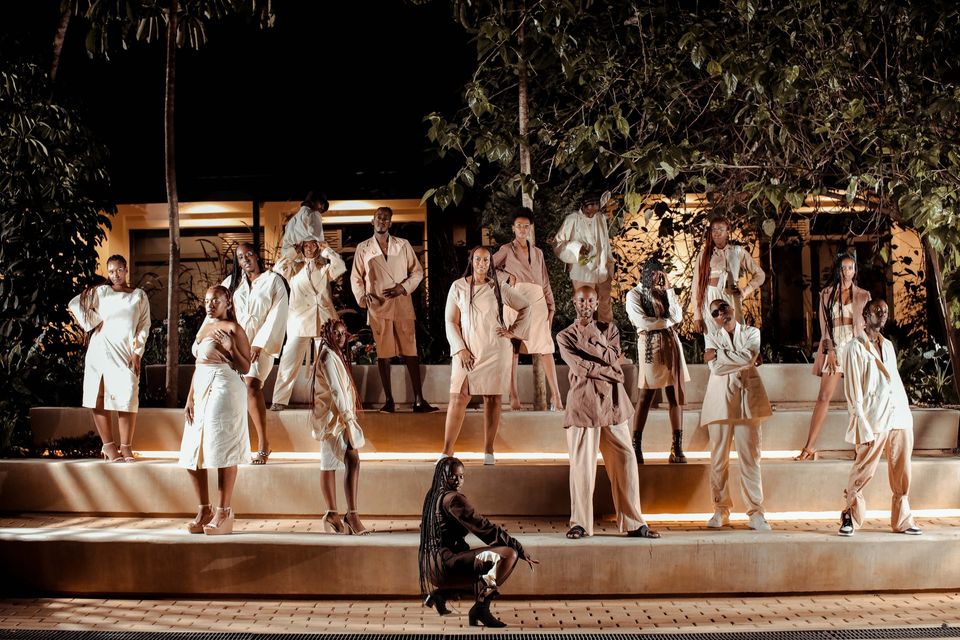 27’ collection
27’ collection
“My empowerment journey was made possible thanks to the amazing women surrounding me. Friends, sisters, mentors and family members. Naming each piece of the ‘27’ collection after the women who’ve had a substantial influence in my life was my way to show them my appreciation for helping me becoming who I am today” - Elisabeth
As part of its inclusive employment strategy, the brand recruits and trains informal female workers. For the sewing process in particular, Berabose employs only women, with the aim of providing them with a steady income and financial security. This not only helps to promote gender equality and women’s economic empowerment within the community, but it also creates a sustainable system that benefits women and their dependents.
Raising awareness on the importance of sustainability in fashion
The brand also has a cocktail of sustainability initiatives aimed at increasing customers’ knowledge on sustainability. Through its social media platforms, Berabose educates consumers and encourages eco-friendly behaviors. They also provide information on how to take measurements to avoid commute time from their consumers, and textile waste due to misfits. They also created a slow fashion series to inform consumers about fast fashion's environmental and social consequences and tips to avoid them. Some of their posts are dedicated to mixing and matching items to help consumers realize different looks.
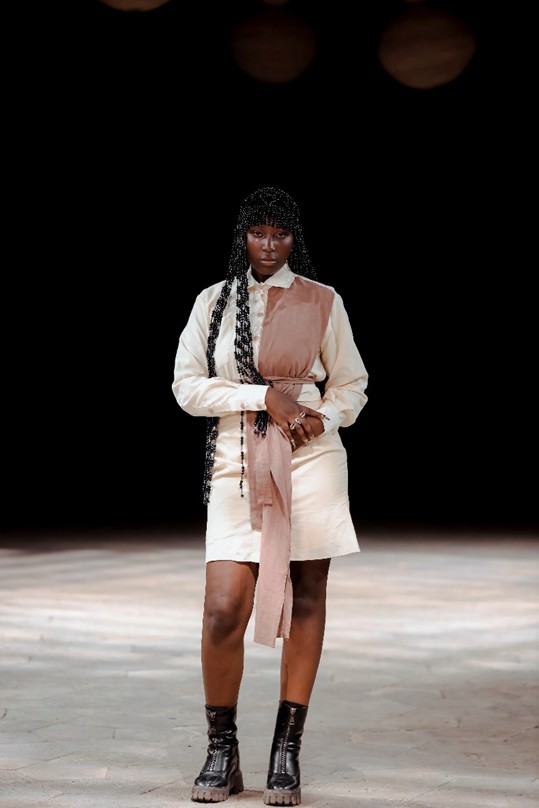 Mukamusoni shirt
Mukamusoni shirt
About being a finalist of the Fashionomics Africa Contest
Berabose Designs was elated to have been part of the finalists for the Fashionomics Africa Contest. Making it to the finals of the competition has helped to validate their efforts and reflected the value of the work that the brand is doing.
"Being a finalist in the Fashionomics Africa contest is not only an honor for Berabose Designs, but also a testament to our commitment to promoting African fashion to a global audience. We are grateful for this opportunity to showcase our team’s work, share our journey and vision for sustainable fashion with the world." - Elisabeth
The Fashionomics Africa Contest awards the finalists with a package of prizes that includes a branding kit, promotion actions to gain visibility as well as mentorship and networking opportunities to facilitate business growth.
Overall, Berabose's sustainable business model focuses on reducing the environmental impact of their products through sustainable sourcing, upcycling, biodegradability, and encouraging eco-friendly behaviors. They also focus on innovation, particularly technology utilization, which positions them as a pioneer for sustainable design solutions.
To view more of Berabose Designs’ incredible work, visit their website.
Source: FASHIONOMICS
During the interview with the RCFS’s media this morning the CEO & Founder of Tarama Rwanda Initiative Mr. Wilson KAGERUKA said that preparation is underway and his team is doing all the best they can to bring a unique summit for Rwandans especially young and upcoming artists to be inspired.
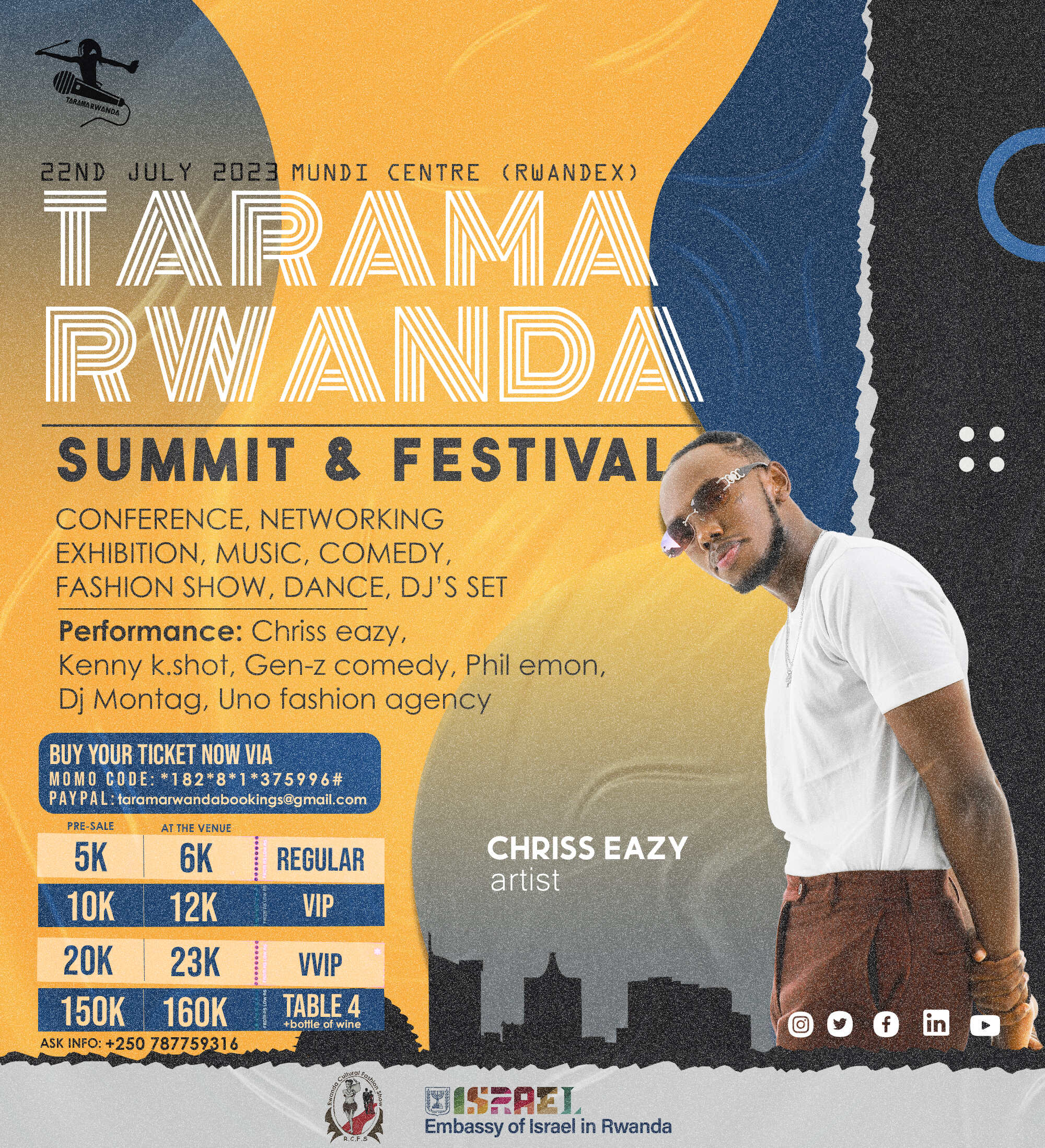
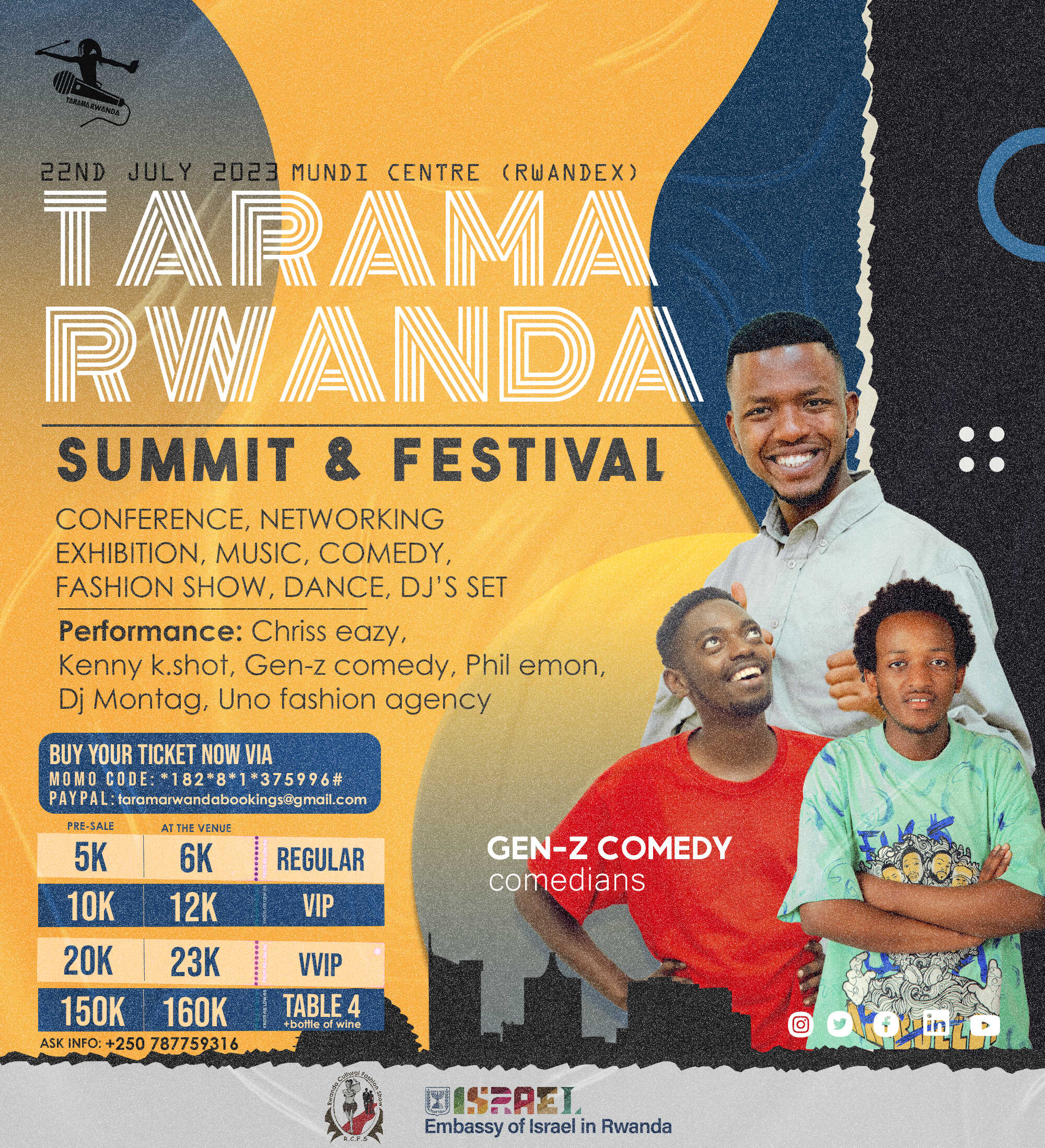
“ I am happy for the progress with Tarama Rwanda Summit and Festivals 2023, our 1st edition. Even though I still have a lot on my list. My team is very active and we are now focusing on working with our sponsors and welcoming fashion designers and exhibitors to showcase their creations” Said Kageruka.
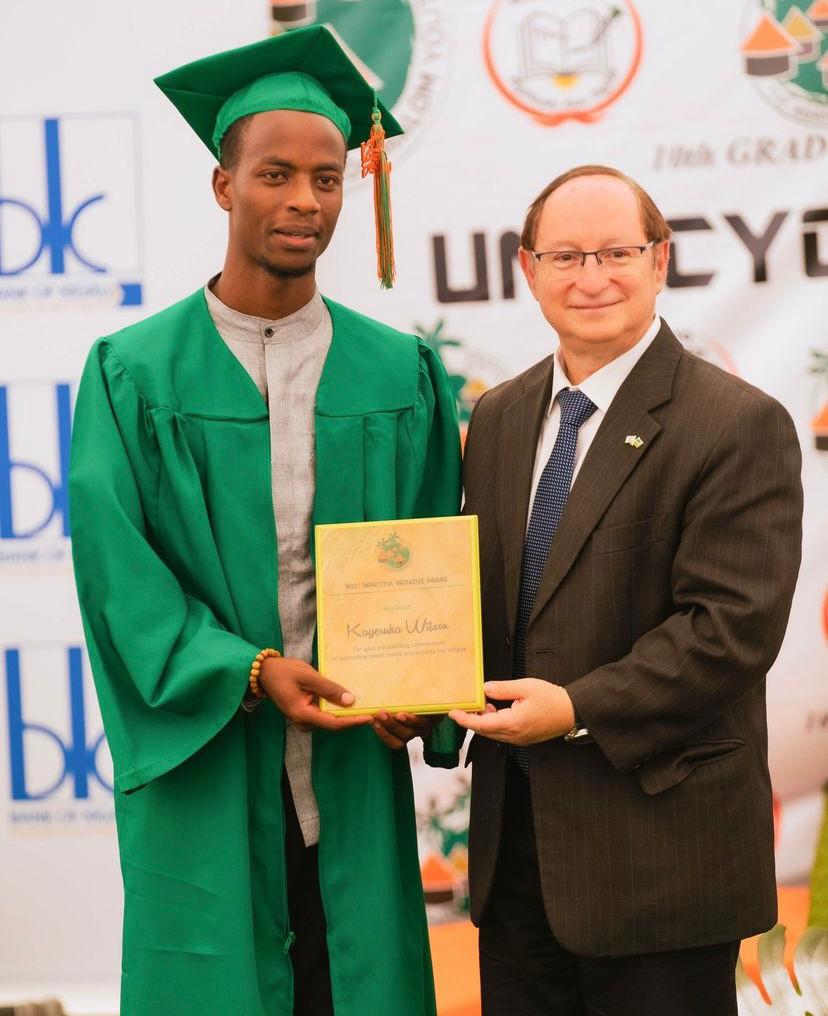
Mr. Wilson KAGERUKA received an award as the best Entrepreneur of 2022, an award given by His Excellence Ambassador Dr. Ron Adam; the ambassador of the state of Israel in Rwanda, on behalf of Agahozo-Shalom Youth Village
The Tarama Rwanda Summit and Festival is scheduled on 22nd July 2023, in Kigali at Mundi Center. Mr Wilson added that artists and performers are already selected as well as a professional modeling agency that will present a nice fashion show.
“We have already selected artists and performers and we have mixed with all forms of arts so that our guests will enjoy music, comedy, and fashion show. This is in addition to the inspiration ideas from the summit we hope that attendees will gain from different speakers and moderators” said Mr. Wilson
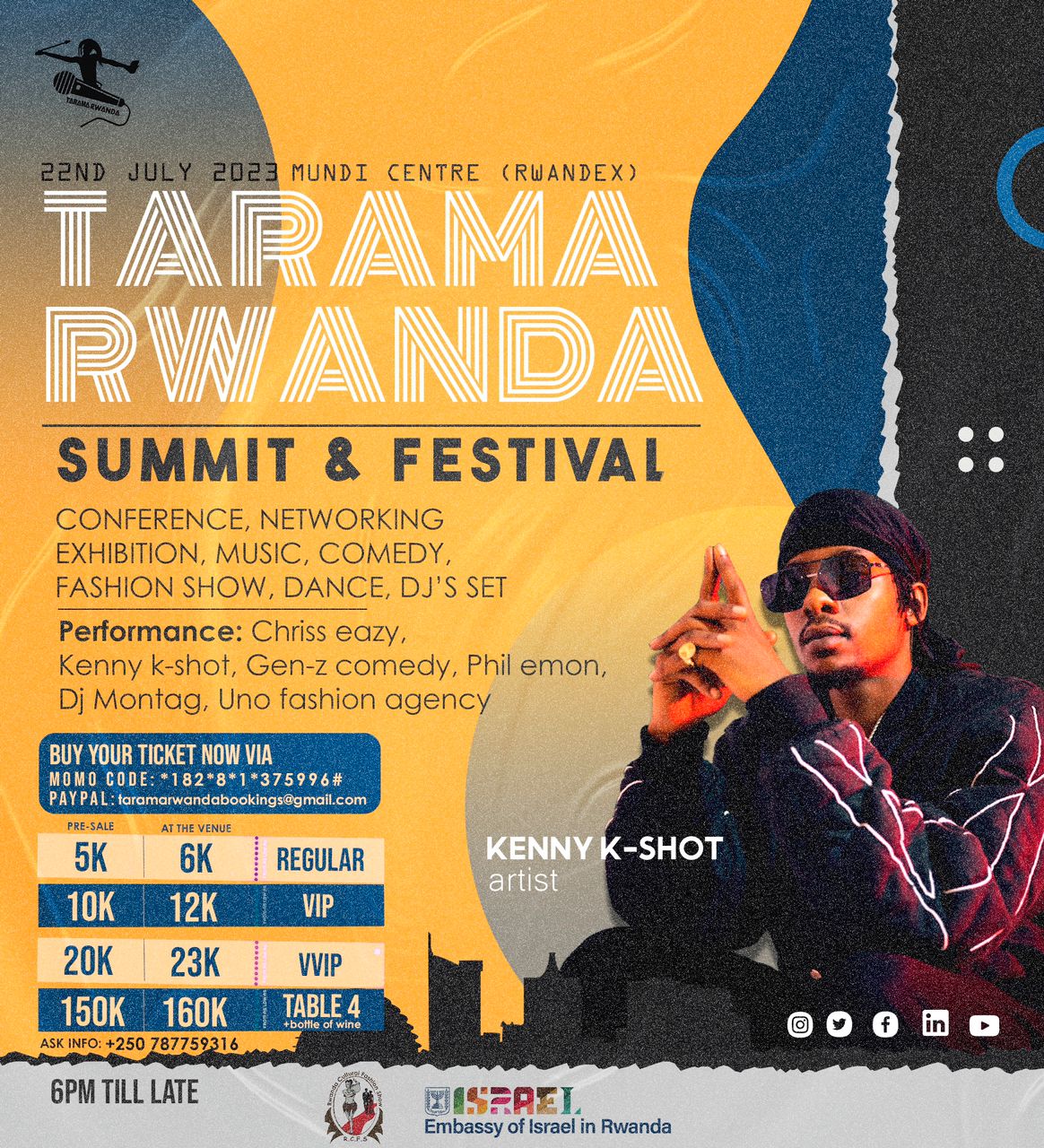
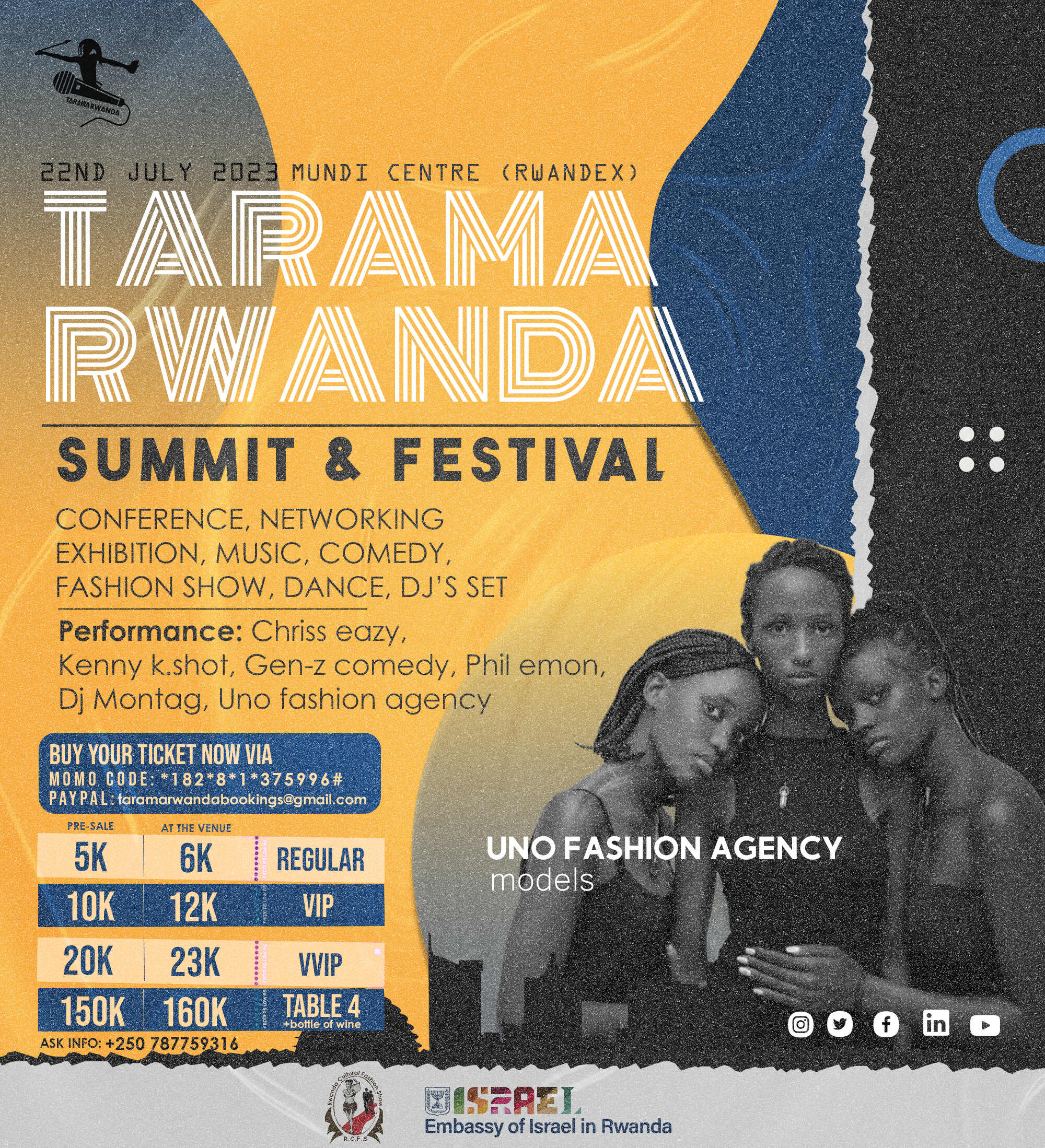
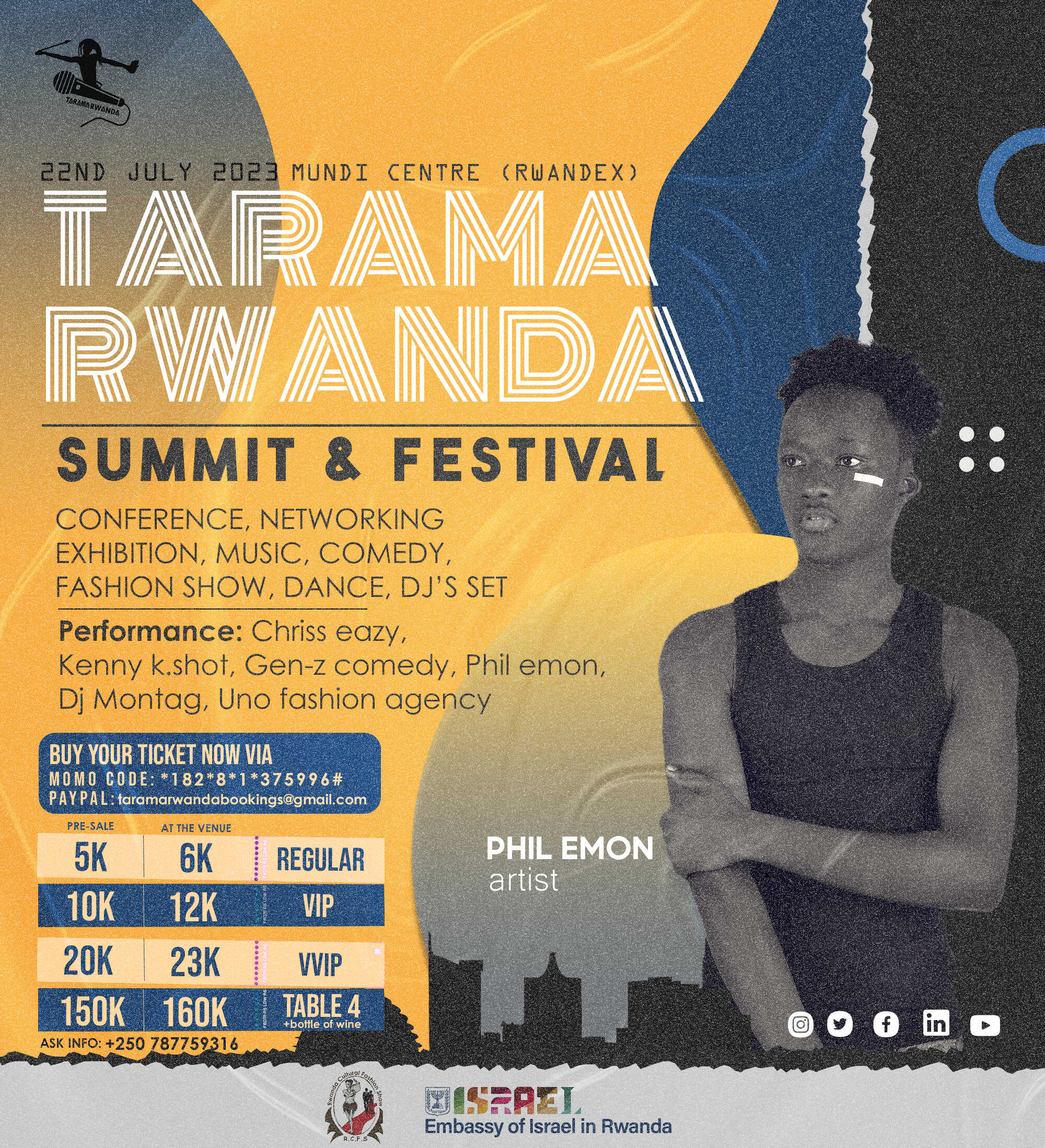
How far is Tarama Rwanda Initiative?
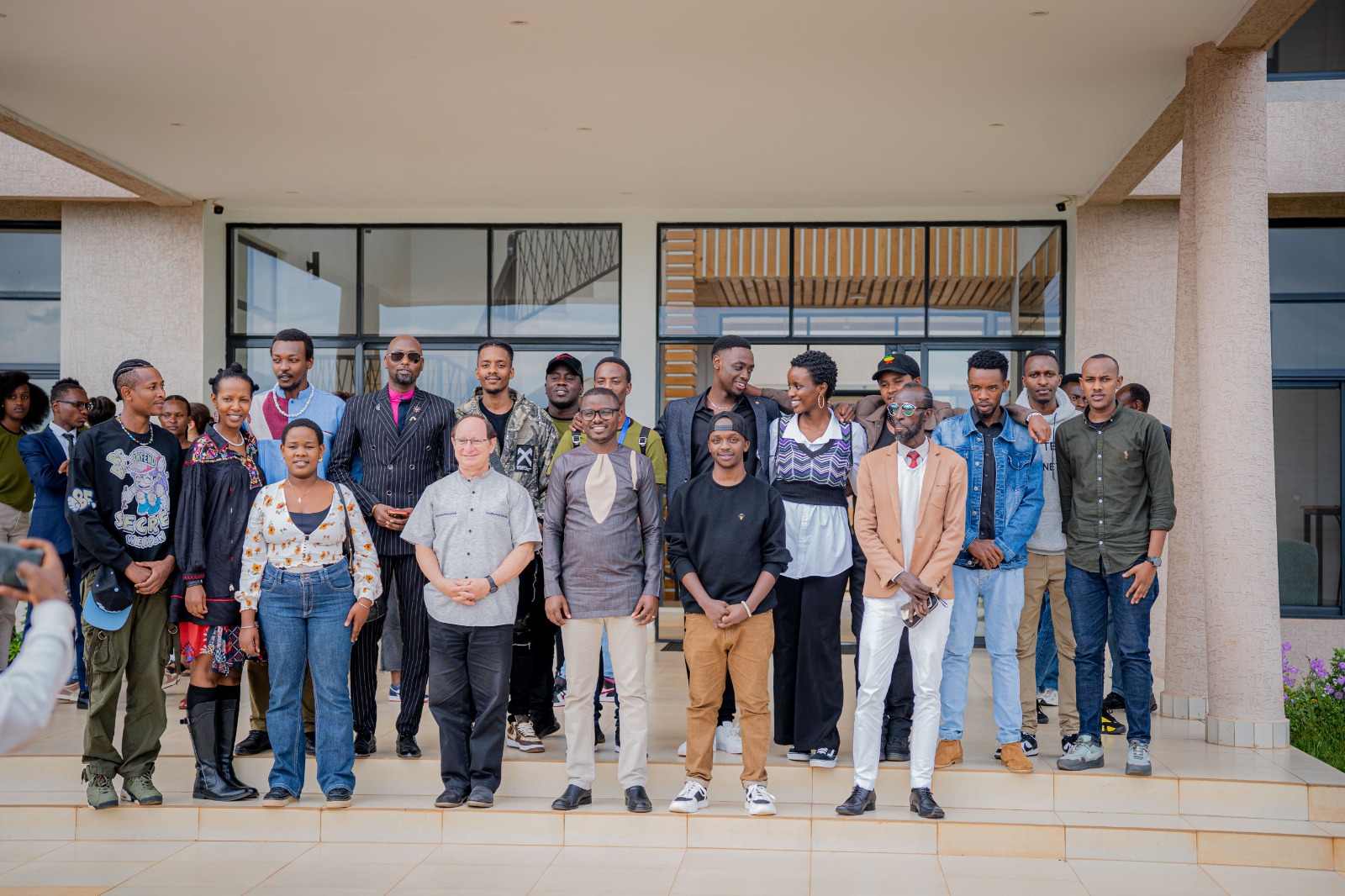 The members of the Tarama Rwanda Initiative with their partners including His Excellence Ambassador Dr. Ron Adam; the ambassador of the state of Israel in Rwanda
The members of the Tarama Rwanda Initiative with their partners including His Excellence Ambassador Dr. Ron Adam; the ambassador of the state of Israel in Rwanda
Since Tarama started, its founder Mr. Wilson KAGERUKA received an award as the best Entrepreneur of 2022, an award given by His Excellence Ambassador Dr. Ron Adam; the ambassador of the state of Israel in Rwanda, this award was given on behalf of the Agahozo-Shalom Youth Village. Mr Wilson is happy with what his organization had done so far but he sees no collaboration at all “The industry lacks collaboration among the artists in both fields and this will impact the rate of creativity and productivity in Outputs”.
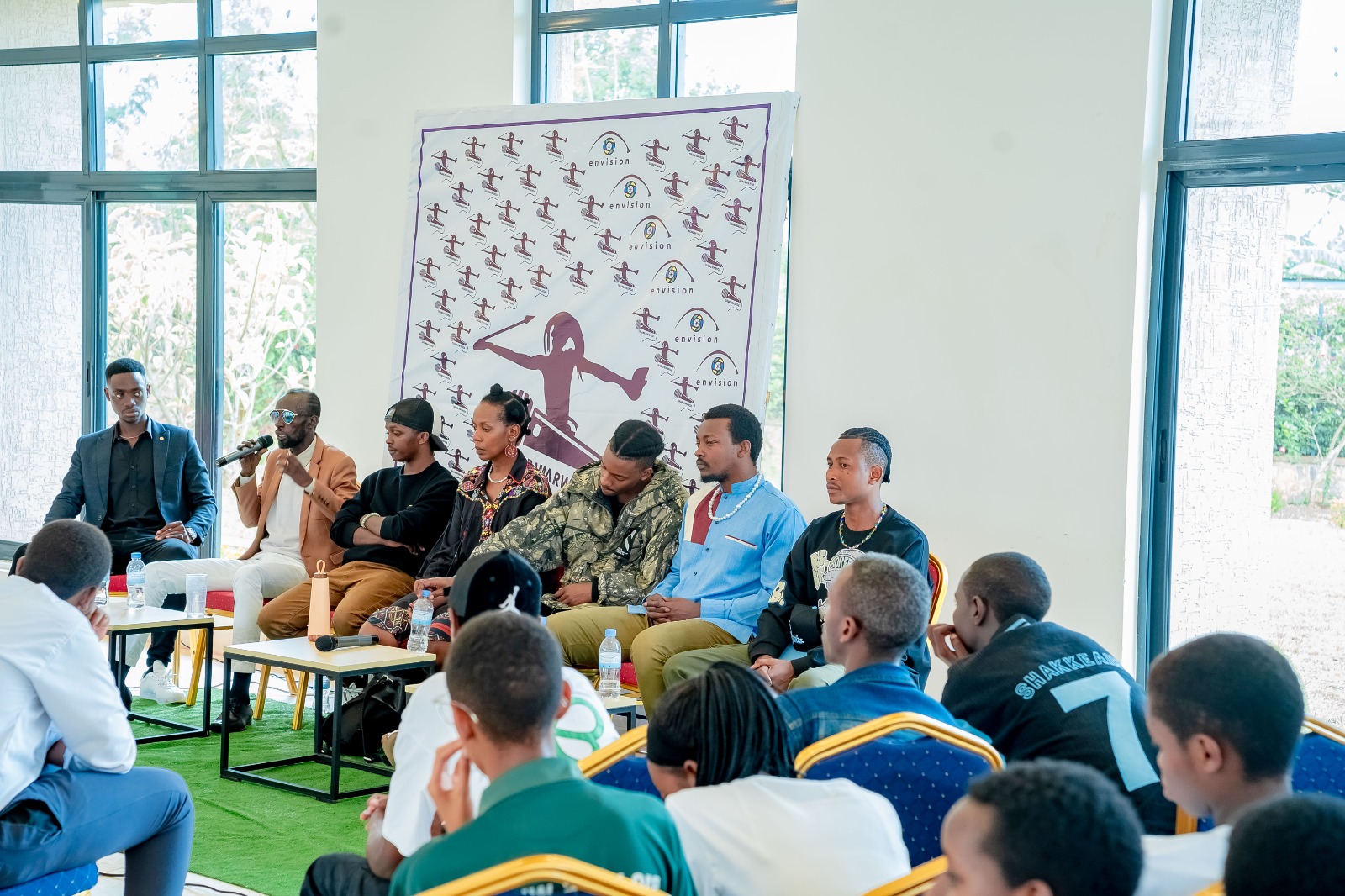 Some of The members of the Tarama Rwanda Initiative during the workshop in Rwamagana District
Some of The members of the Tarama Rwanda Initiative during the workshop in Rwamagana District
More guests artists to attend the summit & festival by Tarama Rwanda Initiative:
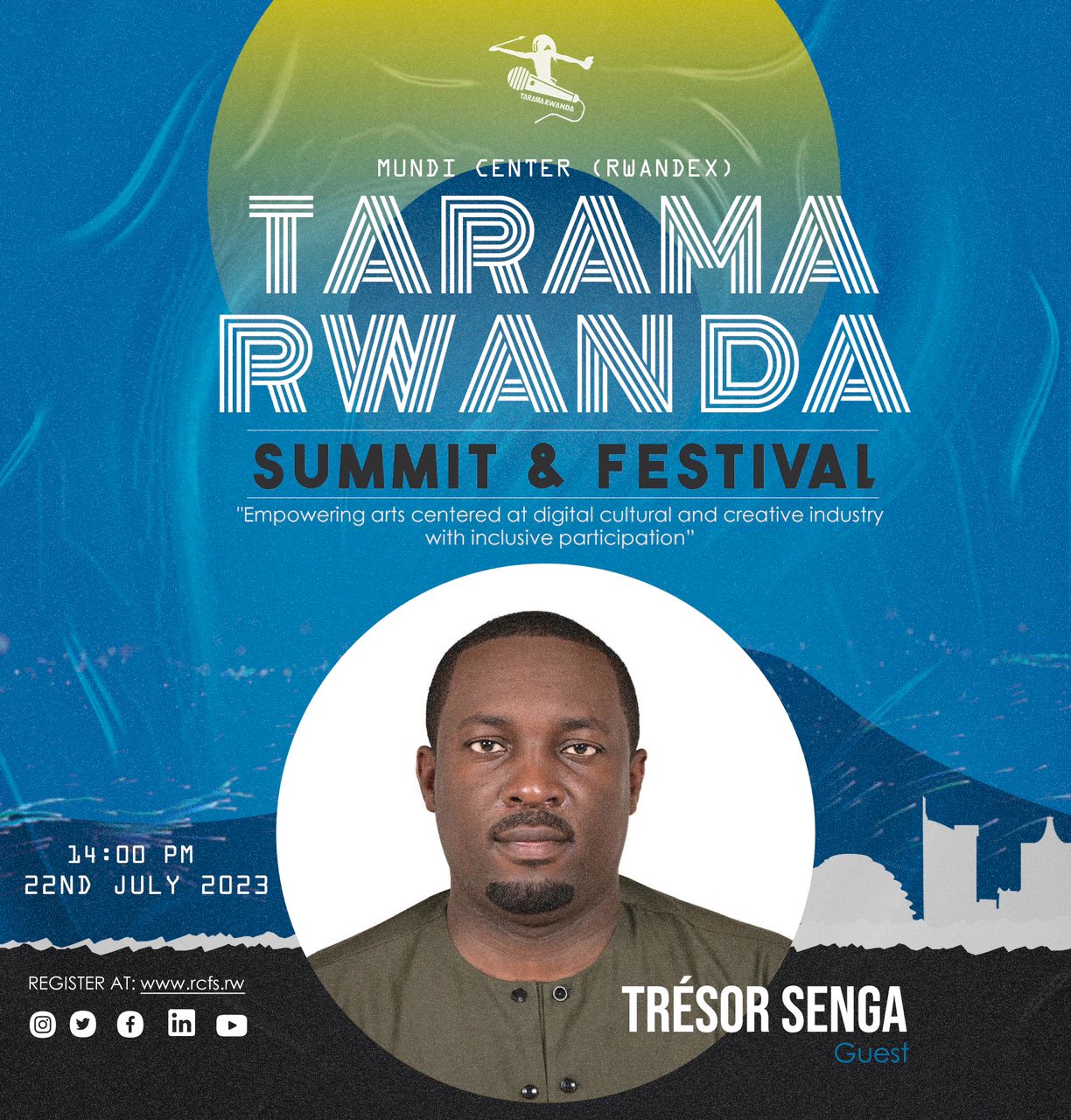
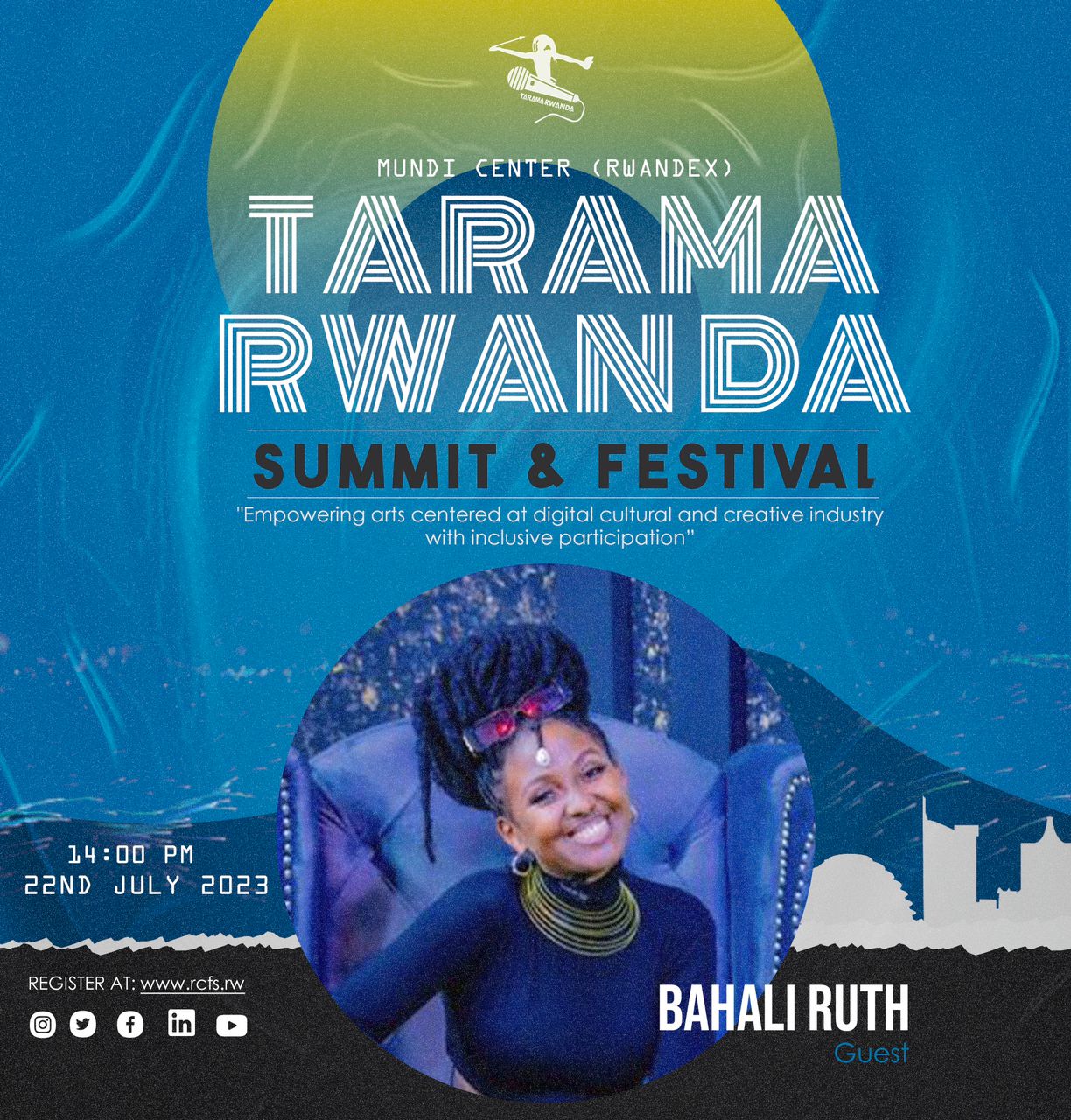
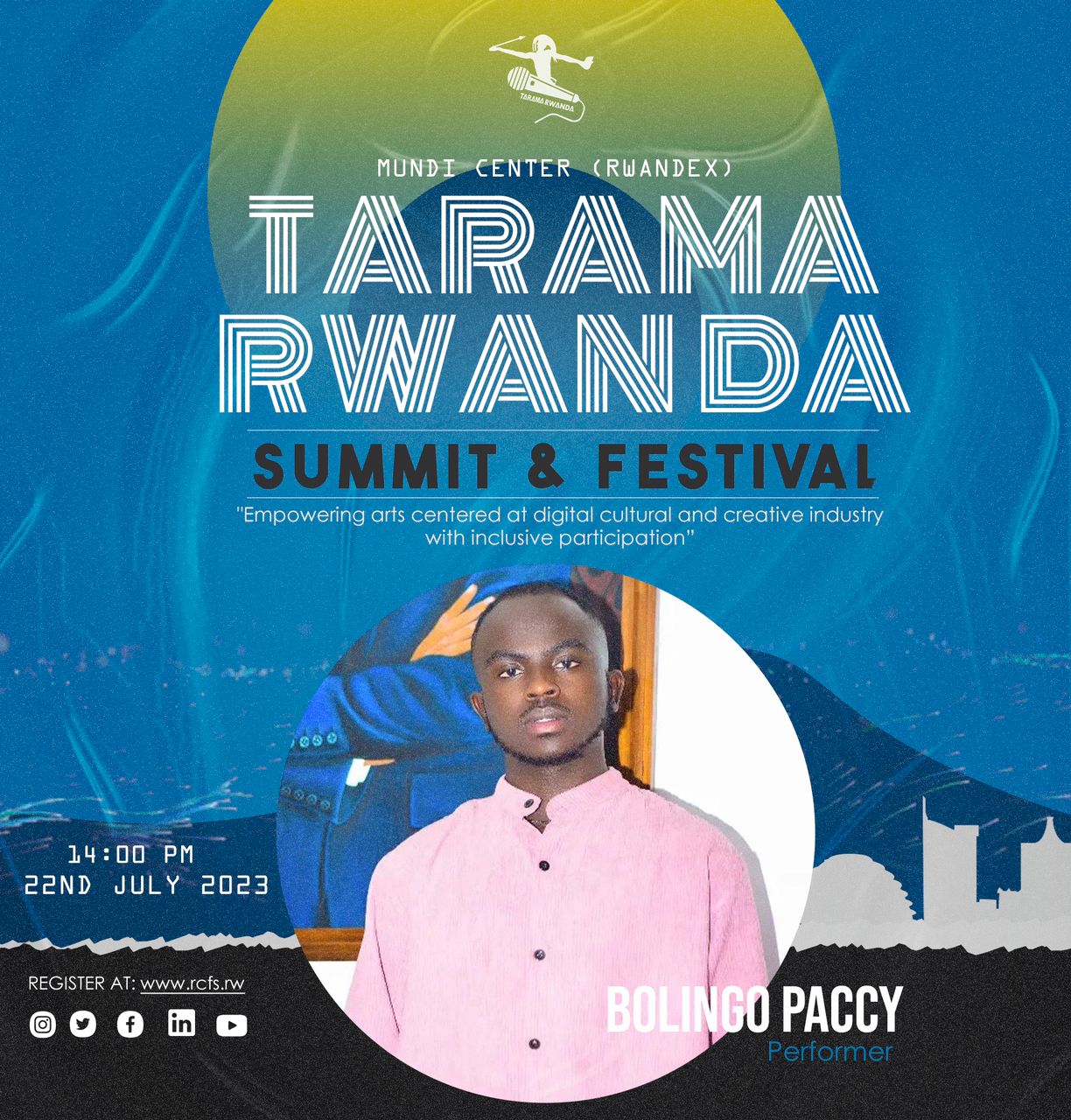
By RCFS
Over the last decade, Africa’s fashion industries have come into the spotlight and their potential for powering economic growth and development continues to be evident. The desired development of Africa’s fashion industries also places a demand on countries, to build the capacity to achieve growth. With that in mind, the quantity, and more importantly, the quality of available labor supply becomes a crucial factor for African economies to reap full benefits from their fashion industries. In this week’s edition, we take a look at the current state of skills in Africa’s fashion industries and explore potential remedies.
The Current State of Skills in Africa’s Fashion Industries
Limited competencies
There is a lack of managerial competencies across the labor force available in Africa’s fashion industries. Most workers in these industries are therefore concentrated at the entry level, or floor management. Due to the nature of training opportunities available, there is often a need for substantial training even for line workers.A report on Kenya’s fashion industry noted that the country has the lowest value added per worker, owing to factors such as long change over times i.e. the time required for a line worker to adjust to a new production run.
Limited educational opportunities
Educational opportunities available for aspiring fashion entrepreneurs are quite limited. The African fashion education sector is fragmented, highly informal and lacks regulation. As such, a majority of African fashion schools that are operating are not accredited. They are also characterized by poorly structured curricula, outdated equipment and under qualified instructors. Underinvestment in technical vocational education institutions is also observed, further narrowing down the opportunities of building capacity of African fashion businesses.
Lack of on-job training
Availability of training opportunities is linked to the level of development of the industry and consequently of the economy. A key feature of most African countries is high informality which also speaks to the limited availability of decent and gainful employment opportunities, which are pivotal in providing learning opportunities. Resultantly, on the job training opportunities are not readily available for the development of professionals in the fashion industry.
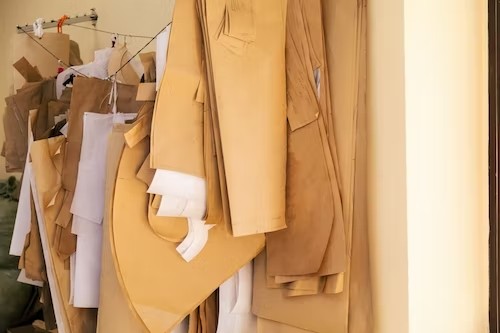
Difficulties adhering to quality standards
Due to the convergence of a myriad of factors, most of Africa’s fashion industries are not sufficiently capacitated to produce while adhering to the industry standards. To meet the quality requirements, a lot of training needs to be provided for workers after being recruited otherwise, the products fall below market requirements.
Limited Supply Chain Management Skills
Africa’s fashion industries lack skills in the areas of sourcing and production, and consequently securing the needed quality and quantities of materials is difficult for most fashion businesses in the industries. This challenge has also been attributed to lack of sector specific training which contributes to entrepreneurs’ limited understanding of the demand volatility and cyclical nature of most fashion products. As such, poor sourcing and supply chain management skills introduce high costs through failure to meet demand in time. Resultantly, it affects the value of products sold.
Skills Mismatch
According to a survey done by CIAFE, 90% of fashion schools in Africa provide fashion design courses only and do not focus on other parts of the fashion value chain. This is against a background of targeting export markets in Europe and the United States of America, where companies prefer doing their fashion design in–house. As such, the skills that the labor force has are not in tandem with the market requirements. For fashion entrepreneurs who have sights on owning their own brands, recruiting a team is also difficult for them because of the low supply of other technical skills required in the fashion business.
Bridging the Skills Gap in Africa’s fashion Industries
Investment in Fashion Education
Africa’s fashion industries are in need of a ‘big push’ type of capital injection. Pouring vast resources in the industries will build competitiveness in numerous ways, which includes making it possible to deliver effective training and capacity building. It will also contribute to value chain development which will ensure that there are backward and forward linkages across the textile and apparel value chain. Such a scenario will motivate training institutions to update their training material to meet the needs of a well-developed domestic value chain, which would have been facilitated by a significant capital injection.
Collaboration between industry, academia and government
Learning institutions should have relationships with market leaders in their domestic fashion industries in order to stay updated on market requirements. In that way, their training material can be forward looking, incorporating the requirements needed along every step of the textile and apparel value chain, with the consideration of the extent to which the country’s value chain is developed. In the same manner, they should also be closely linked to the government to make it easy to garner financial and non-financial support for training in the fashion industry.
Linking the fashion industry with other sectors of the economy
The ministries under which fashion education falls should be closely linked to other ministries such as tourism, art, sports and culture. The connection between the industries needs to open up opportunities for fashion students to design, and manufacture garments for key events hosted by these respective ministries. A move like that will push training institutions to provide skills which enable their students to rise up to the commercial requirements of clothing production, in a bid to fill a gap in a readily available market. With such an increase in market opportunities, the demand for labor and availability of on-job training will also rise.
Organizing market expos
Export markets are a critical source of revenue for Africa’s textile industry. To support the development of skills in Africa’s fashion industries, the government can facilitate opportunities for fashion businesses and training institutions in Africa to interact more with export market leaders. This allows them to have adequate information on the product requirements of export markets and so align their taught skills with the reality of the market.
Source: FASHIONOMICS
Musa&Co. have been announced as the winners of the third edition of the Fashionomics Africa Contest. The online competition recognizes African fashion brands that are striving to transform the fashion industry in terms of production, consumption and recycling, to promote more eco-friendly consumer practices. A total of 233 submissions were received to the competition, which were evaluated by a panel of judges consisting of representatives from the United Nations Environment Programme, Parsons School of Design, strategic consulting and communications agency BPCM, the Ellen MacArthur Foundation and the Centre for Sustainable Fashion. The panel shortlisted three finalists: Musa&Co., Berabose Designs and Umòja Shoes. The three finalists were then put to a public online vote on fashionomicsafrica.org to confirm the winner.
Beyond being sustainable and ethical, Musa&Co. demonstrated a high standard of excellence, extraordinary creativity and potential to scale their activities. In this week’s edition, we share more about the work being done by the brand and its sentiments on the 2023 Fashionomics Africa Contest.
About Musa&Co.
Musa&Co. is an accessory brand founded by Sofia Mateus and Ivan Morais. The brand is focused on creating season-less pieces ethically handcrafted in Benguela (Angola). From inception, the brand was a reflection of the passion of its owners for crafts and natural materials, and a statement for the need of self-expression and culture decolonization of fashion in the African continent.
"We believe in the power and beauty of African raw materials, African sensibility and handcrafts.” - Sofia
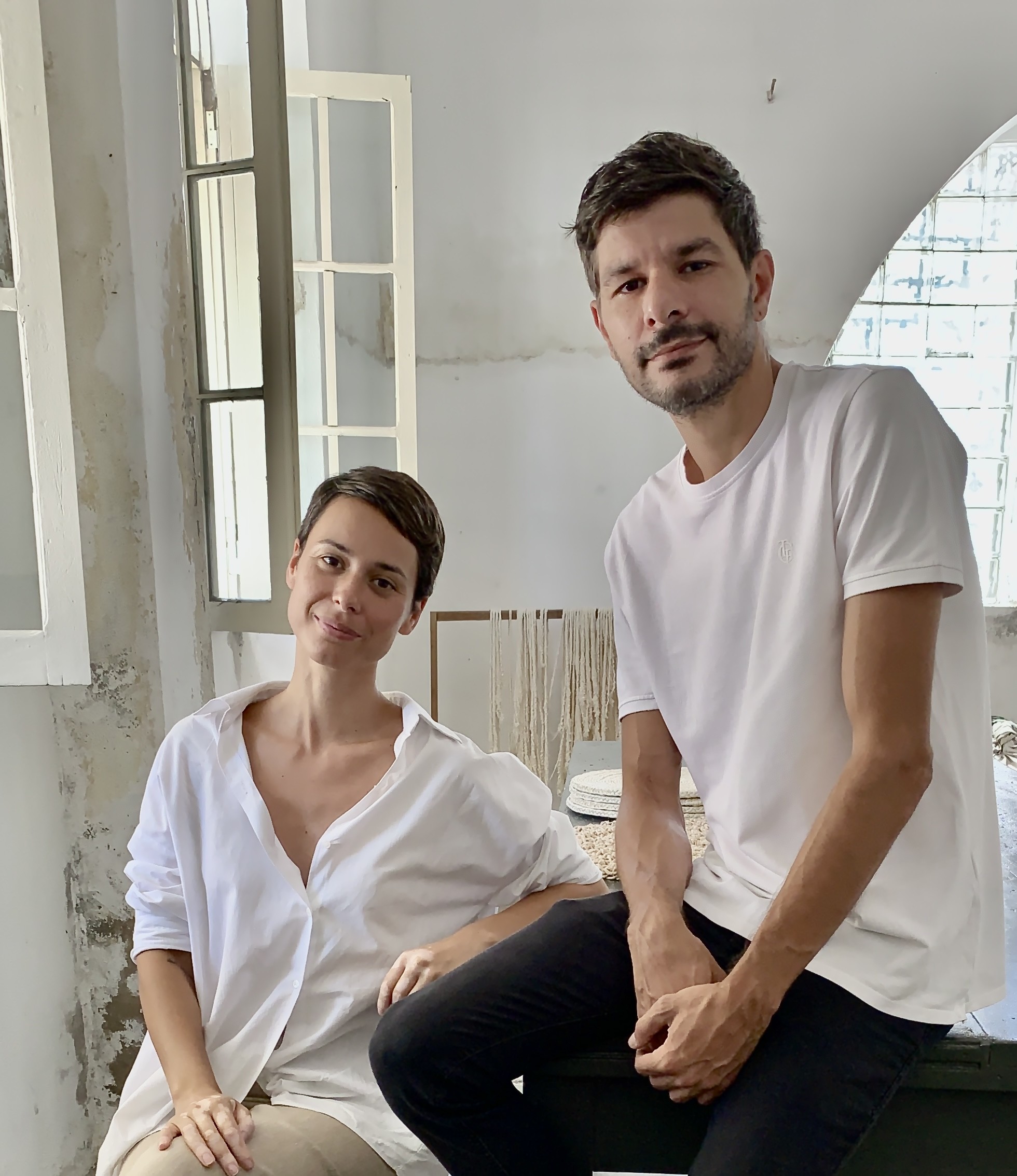 Sofia Mateus and Ivan Morais, co-founders of Musa&Co.
Sofia Mateus and Ivan Morais, co-founders of Musa&Co.
Design and production of all of the brand's products is done in-house, using locally sourced natural materials. As an ethical brand, Musa&Co. is also very deliberate about sourcing its raw materials from a list of key local suppliers, creating forward linkages for agricultural farm owners and local farmers from rural areas. For example, the brand collects seeds of eaten fruits, wood, or hand extracted sisal, from rural areas supporting them with an extra income. They also source agriculture waste as a source of raw materials, such as banana fiber (for spinning and braiding) or onion peels (for dyeing) from local farms. Musa&Co. therefore helps these farms to improve their resource management and emissions reduction, by re-using waste products that would otherwise be burnt.
As further demonstration of the brand's commitment to the cradle-to-cradle approach, Musa&Co. also works with the local textile industry by giving a second life to the factory’s leftovers and cotton waste. The waste is used to produce items such as handmade cloth, bag linings and dust bags. Musa&Co. subscribes heavily to the concept of slow fashion. As such, its methodologies are based on handmade and slow-making processes and techniques.
"We truly believe in the added value of handmade goods, as well as in the power of craftsmanship as a tool to fight social inequality and poverty." - Sofia
The expertise and craftsmanship of the brand is demonstrated in the production of its authentic, luxurious products such as the Mwana, Kaholi and Limi bags.
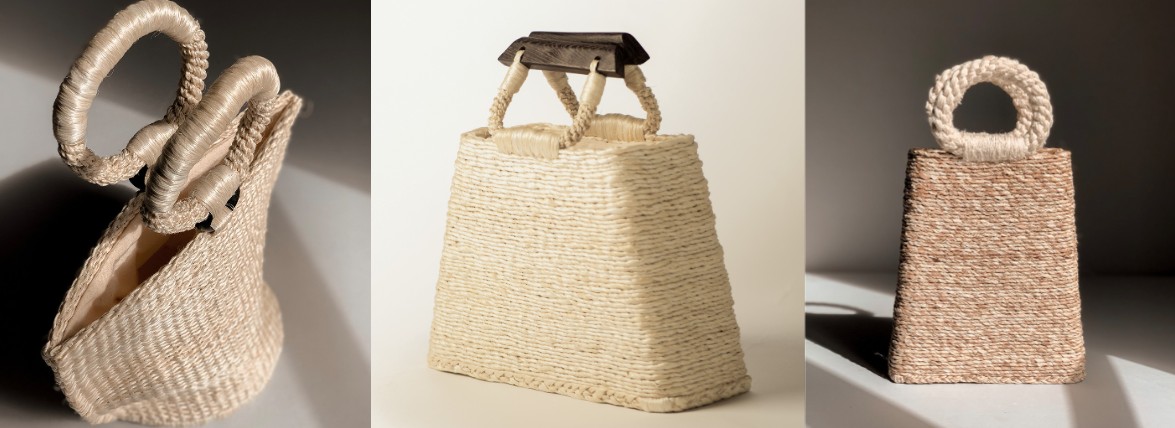
Mwana, Kaholi, and Limi bags
These top three best sellers present unique details such as banana flower dyed handles, hand woven textures, hand-sculpted horn and hand-carved repurposed wood handles. The level of detail and combination techniques required for making such pieces takes an average production time of 20 days. Additionally, no chemicals are used through the production process and water consumption is kept at a minimum. Musa&Co. is also a plastic less brand. Its packaging is made of repurposed cotton cloth and recycled paper. All of this goes to show the brand's high commitment to sustainability principles.
In addition to being sustainable, Musa&Co. has proven to be an inclusive brand. It has successfully built a team, comprising of young women and men with no literacy skills and whose expectations for employment opportunities and professional development would normally be very low. Through the brand's pedagogical approach, they have become part of a cohesive team fully dedicated to their practice. As a team, they have grown through a constant desire to learn more.
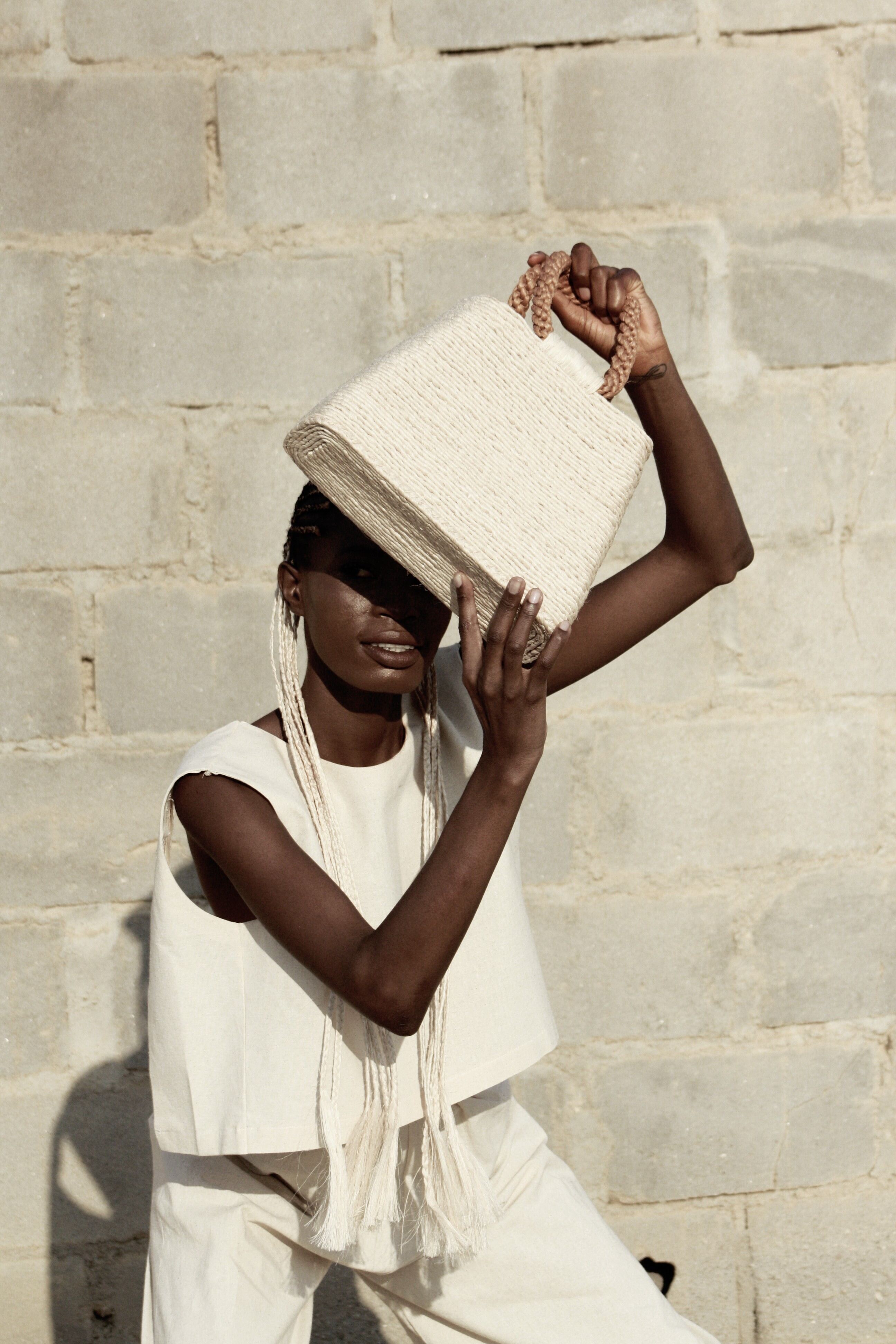 ZIRA collection 2020
ZIRA collection 2020
Over the last 5 years, Musa&Co. has been researching, developing and implementing its own techniques for fiber extraction, weaving, braiding, sewing, spinning, natural dyeing and paper making, adapting them to their contextual reality and needs. One of the brand's biggest achievements is the development of a fiber extractor. This project was achieved in partnership with a local workshop that allowed Musa&Co. to amplify its production capacity by extracting more fiber in less time. Most recently, they have been exploring artisanal techniques to use their studio’s natural fibers leftovers to produce handmade paper for tags and packaging, in a bid to close their production system in a zero-waste circle.
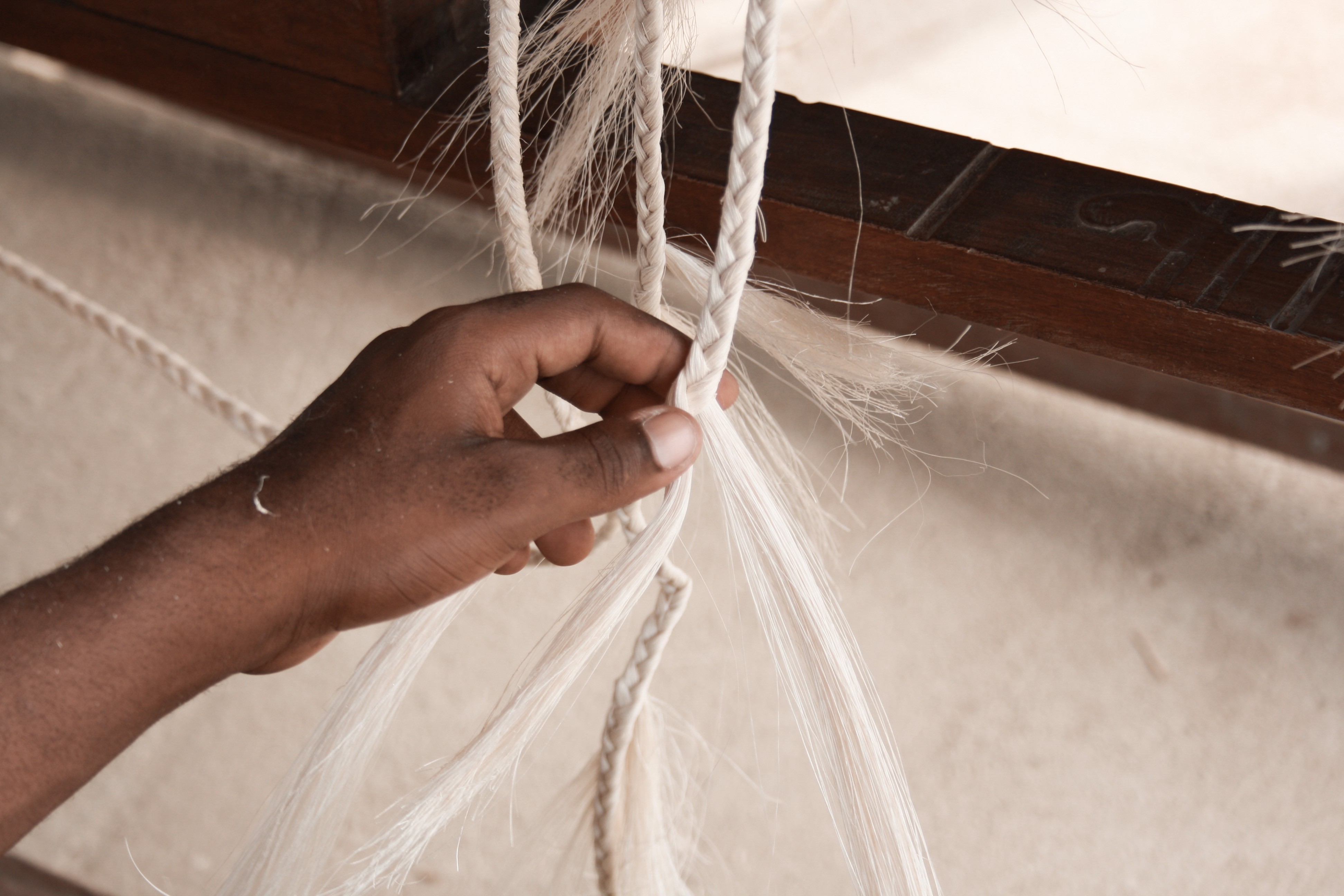 Musa&Co. artisanal methods
Musa&Co. artisanal methods
Raising awareness of sustainability in fashion
Musa&Co. is very consistent about communicating the value of its work and products. They are constantly working towards bringing awareness on sustainable fashion concepts. For instance, their collections are launched twice a year, composed of limited and timeless pieces. All pieces are inspired by cultural elements and experiences, which reinforce its importance for local community development, environmental protection and cultural decolonization. Furthermore, Musa&Co. does not show any kind of support to excessive consumerism, and it sells all its stock at full price throughout the year. They also offer fixing services to encourage long-lasting product life, resulting in a special feeling of care and pride from clients.
About winning the competition
Even though Musa&Co. could count on the fact that the quality of its product would speak for itself in the Fashionomics Africa Contest, they were overjoyed upon winning the contest.
“It is a great honor to be selected as the winners and to represent Angola in the Fashionomics Africa Contest 2023. Winning this prize represents the acknowledgment of our hard work and commitment to our community, feeling an immense excitement to have the support to improve and grow our business. The most profound recognition goes to our amazing team who has been essential for this success.” - Sofia Mateus & Ivan Morais
Beyond the thrill of winning, the competition symbolized the possibility for scaling their operations. Finally, they can invest in their manufacturing system with the $10,000 grant money. This will enable them to speed up their production process, so they can channel more of their energy to experiments and creativity. The brand shared that they intended to explore adding clothing making to their operations. They intend to design very small batches of exclusive clothing pieces, bringing awareness to our customers on the making process, and therefore the added value of each pursue. In addition to the cash prize, the brand will also receive networking and mentoring opportunities from the competition collaborators.
To view more of the work being done by Musa&Co. you can visit their Instagram page.
Source: FASHIONOMICS
In the month of March, organizations and individuals around the world deliberately take time to celebrate the accomplishments of women and to appreciate the strides that have been towards women empowerment. Here at Fashionomics Africa, gendered economic empowerment is at the center of our ethos and as we wrap up the month, we take a look at what some of the fashion entrepreneurs we have worked with have grown and accomplished.
Nigerian fashion entrepreneur, Gift Olohije is one of the women who won the second edition of the Fashionomics Africa sustainability contest, scooping the first prize. Her brand, Lohije, captured the hearts of the adjudicators with its unique and conscious and innovative design processes and materials, which produce high-quality, beautiful garments inspired by rich African art. Being a female entrepreneur, the month of March is a very significant time for her with regards to reviewing the growth of her business and planning on its trajectory.
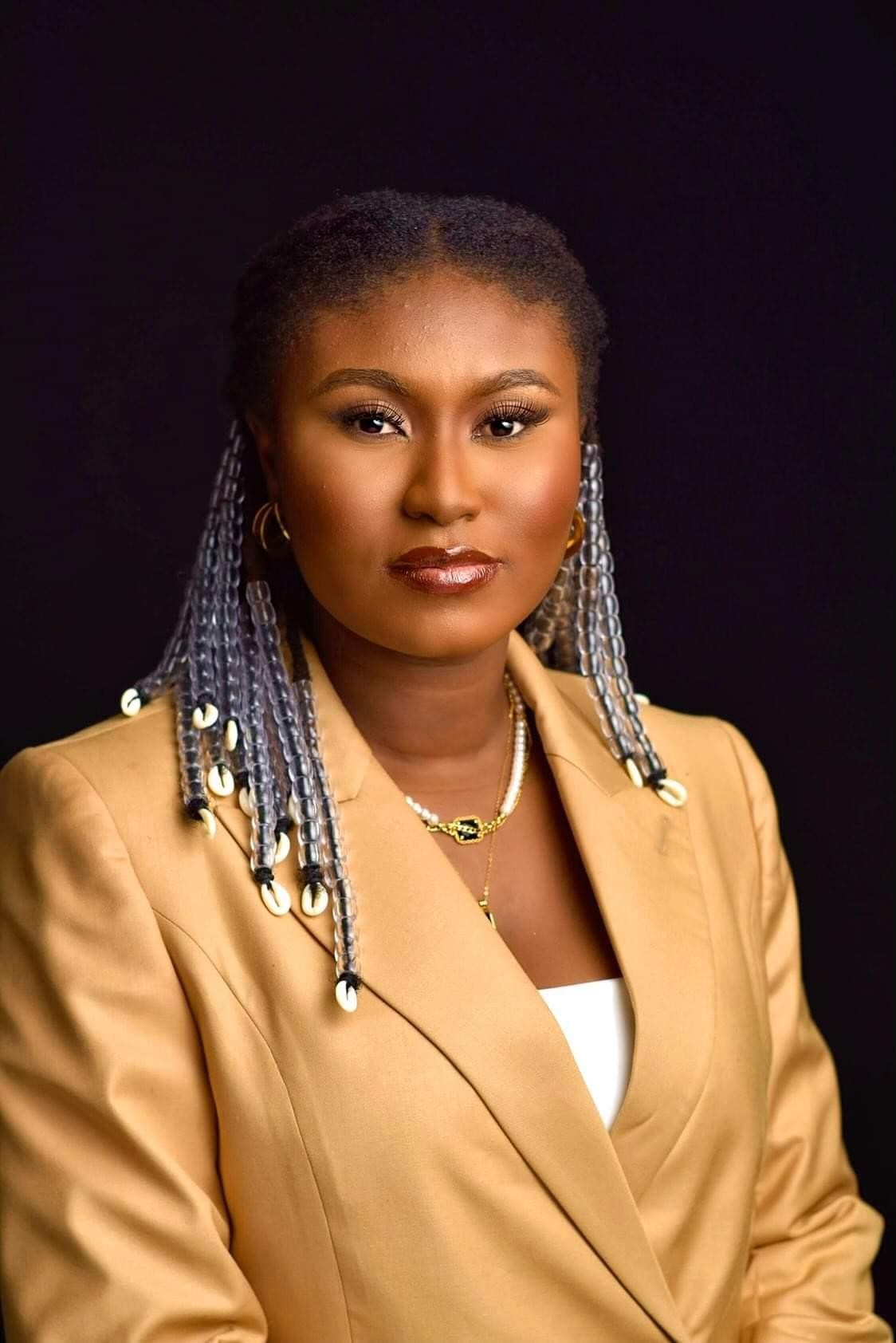
“It means a time when I can reflect on the vision, congratulate myself for the work I did well and re-strategize the goals I didn't meet,” says Gift.
She also views this month as a time for celebrating women in various fields of work and draw inspiration from what they are doing, particularly in fostering equity and inclusivity. The avid entrepreneur adds that such works encourage her to acquire more knowledge that can help her grow, irrespective of capacity constraints. In that spirit, Gift has taken up opportunities to help other female entrepreneurs with their businesses. Her efforts in nurturing other female entrepreneurs in the fashion industry include speaking engagements and providing work based mentorship and training for female artisans.
Asked about how she would like to see women being empowered, Gift noted that she envisions a world were women are empowered holistically. She hopes that the uniqueness of the various facets of women’s lives, such as relationship, health and family will be recognized and the impact they have on running of the business recognized. Gift’s view of equity is the creation of a thriving, yet balanced and safe place where women in business can grow without having to give up other roles and responsibilities in their life.
We also heard from Ijeamaka Nwizu, the founder of Diakwu Cloth and one of the finalists of the Fashionomics Africa contest. Her brand repurposes waste textiles into a beautiful material called Diakwu Cloth. The entrepreneur reinforces Gift’s sentiments on the significance of women’s month, reiterating the need to celebrate the work done by women, including herself and her team! The month also ignites in her the need to reflect on how far gender equality and equity have come in the sustainable fashion space, and the work that still needs to be done as well.
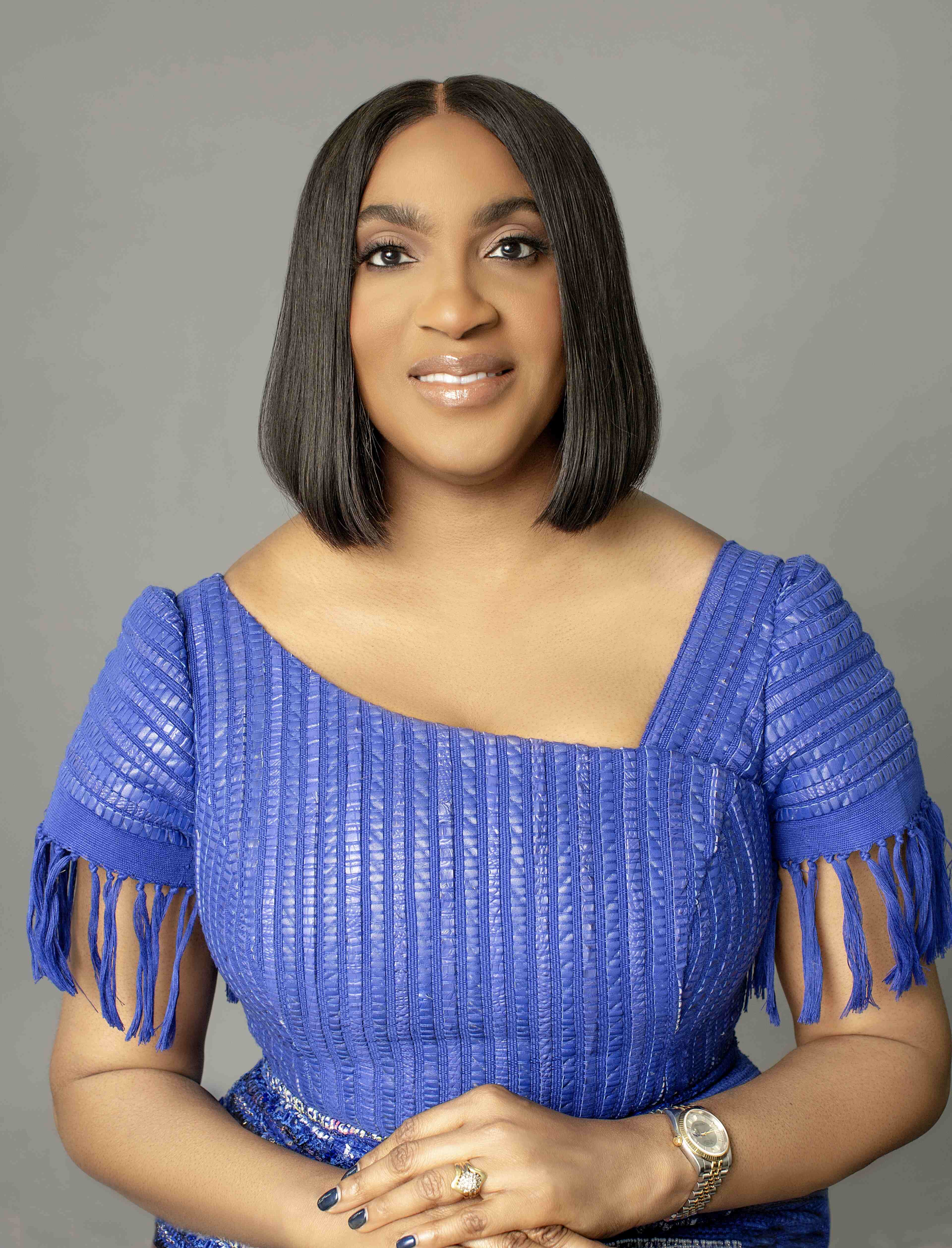
“I believe the industry has become more progressive. I have seen the business support landscape for women change significantly over the years. There are now more resources available to women to grow their businesses - grants, loans, mentorship programs, and accelerator and incubator programs,” highlights Ijeamaka.
As a pioneer of weaving based on recycled materials, Ijeamaka places importance in the value that her brand has added to the Nigerian fashion industry. From training young people in weaving the Diakwu Cloth, to allowing fashion entrepreneurs to incooperate repurposed waste material as Diakwu Cloth in their new collections, Ijeamaka is changing the dynamics of sustainable fashion in Nigeria. Furthermore, her brand has triggered an awakening on sustainability issues, motivating people to seek more information on how their clothes were made and the impact on the environment.
Ijeamaka is optimistic about the future of Africa’s fashion industries. She sees potential for growth and development, as more resources and support are made available for female fashion entrepreneurs, to create an inclusive and level playing field for more people to succeed. Ijeamaka also hopes that more fashion entrepreneurs will bring back the sustainable practices of their forebears for the good of the people and the environment.
For Emma Forson, founder of Elnak Recycle and one of the winners of the Fashionomics Africa Incubator Program, women’s month is a time to reflect on how women in Africa’s fashion industries have come in challenging expectations about women in society. More so, for the brand, it is a time of celebrating how they have been able to progress by standing on the shoulders of other persistent female predecessors who paved the way for them. As a brand that ventured into a space that was almost unheard of in Ghana, textile waste management, its presence in the fashion industry has created opportunities for women owned businesses to dream. From Emma’s view, female-owned businesses are taking their experiences and turning them into valuable tools for their individual journeys as businesses owners, and for those who will come after them.
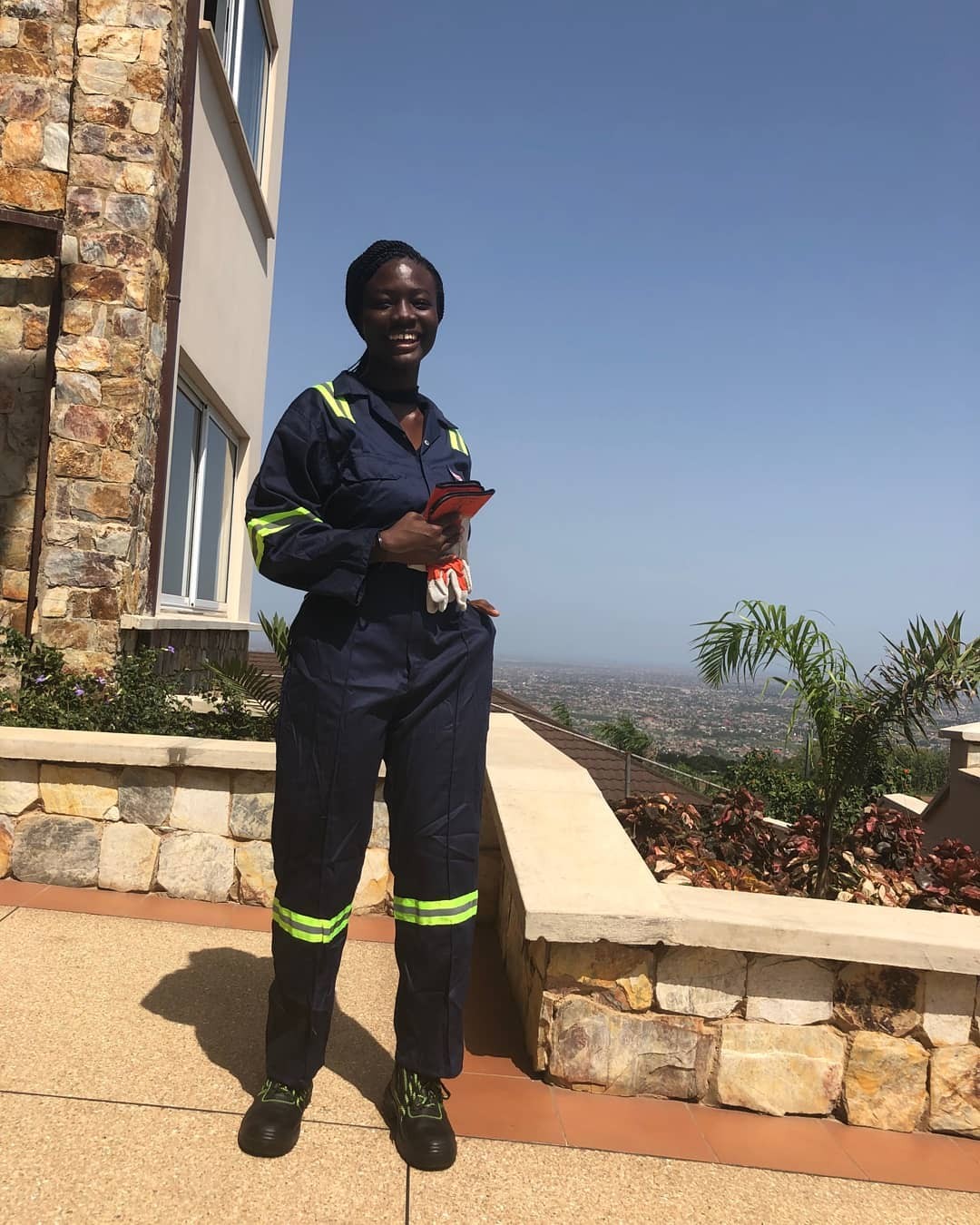
“If we continue to encourage and educate everyone and not just women, we create a more balanced environment that will further bless women, rippling the benefits into more women-owned businesses and the continent as a whole,” says Emma Forson.
Elnak Recycle is playing a pivotal role in fostering innovation in Ghana’s fashion industry. The brand has successfully combined science, community and creativity to resolve and control some of the effects of fast fashion in Ghana. Its strategy of providing support and education on sustainable fashion lifestyle options has facilitated the emergence of a market with a high need for sustainable fashion services which they were not aware they needed.
In light of the growth of Africa’s fashion industries and an observed increase in highly skilled professionals, Emma foresees the African fashion community growing on the basis of inclusion, devotion, and financial stability. She also sees technology taking center stage in empowering women fashion entrepreneurs to think outside the box and boost productivity. According to Emma’s view, women’s active participation in support programs including grants, incubators and accelerators, will increase. Consequently, this growth in capacity of female entrepreneurs, will inspire them to operate in conventionally male dominated spheres, in such a bold manner which will also motivate support and collaboration from males.
Cover picture: Lohije
Source: FASHIONOMICS
Tarama Rwanda, in collaboration with a diverse range of esteemed individuals, institutions, and embassies, is proud to present the Tarama Rwanda Summit and Festival. This event will take place at the Mundi Center ( Rwandex ) from 11 Am to Midnight on the 22nd of July 2023 REGISTRATION. Exciting news, to this year's summit by Tarama Rwanda, participants will interact with very talented and experienced speakers and moderators. This will include the Ambassador DR. Ron Adam of the Embassy of Israel in Rwanda who will be among our VIP guests as well as the moderator.
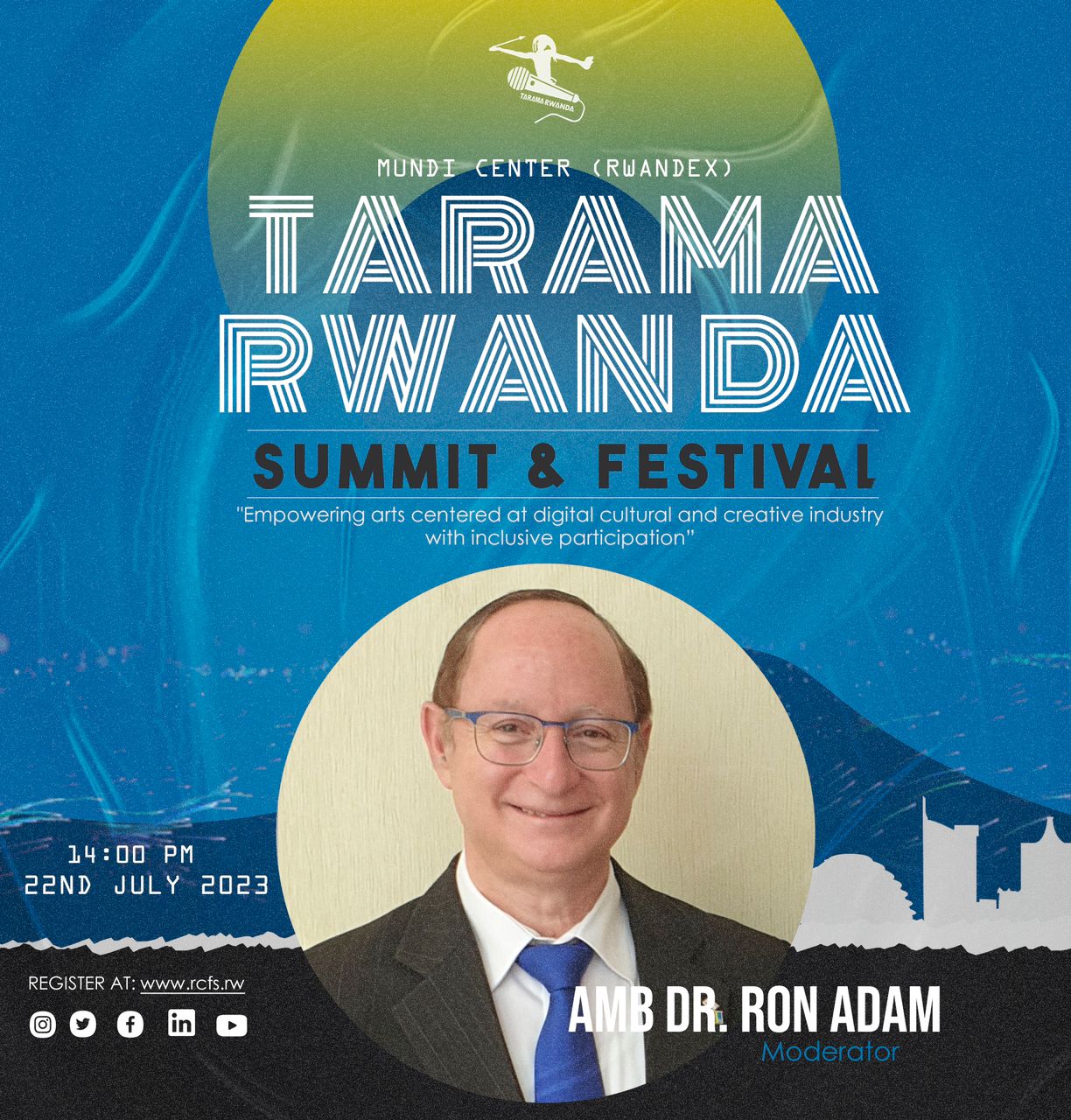
The Tarama Rwanda Summit and Festival will unfold in two exceptional sections, designed to unleash the immense potential of Rwanda's creative and cultural industries. The summit will bring together 600+ inspiring collectives of youth, renowned and emerging artists, visionary entrepreneurs, government and non-government institutions, and esteemed delegates from across the globe. This gathering aims to foster human capacity building through engaging sessions, wherein participants will exchange insights on how the arts and entrepreneurship can effectively contribute to Rwanda's economic development by nurturing and amplifying its wealth of talent. Spanning an array of themes, the summit will feature a distinguished lineup of speakers who will share their invaluable experiences in their respective disciplines.
Guest speakers:
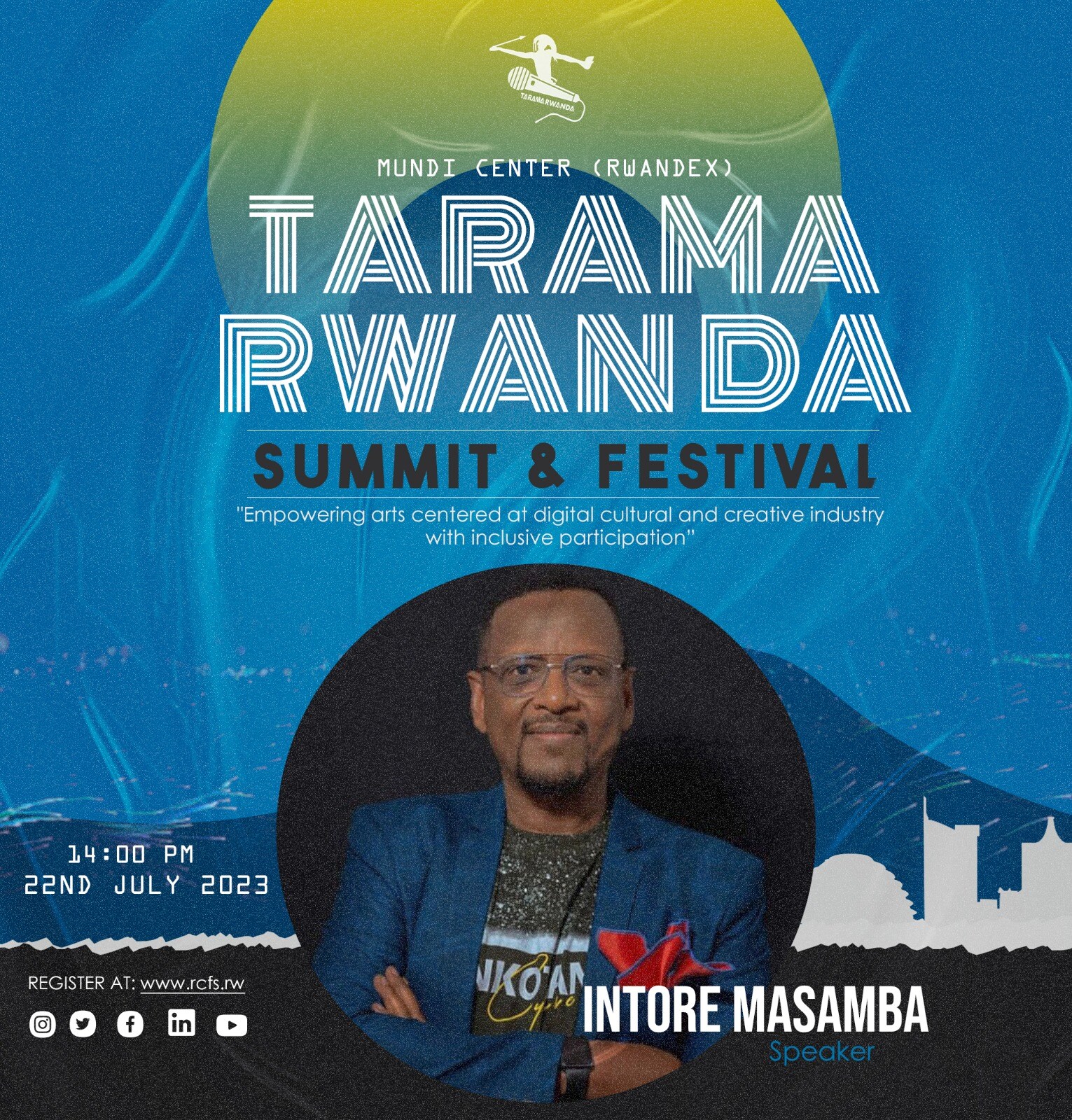
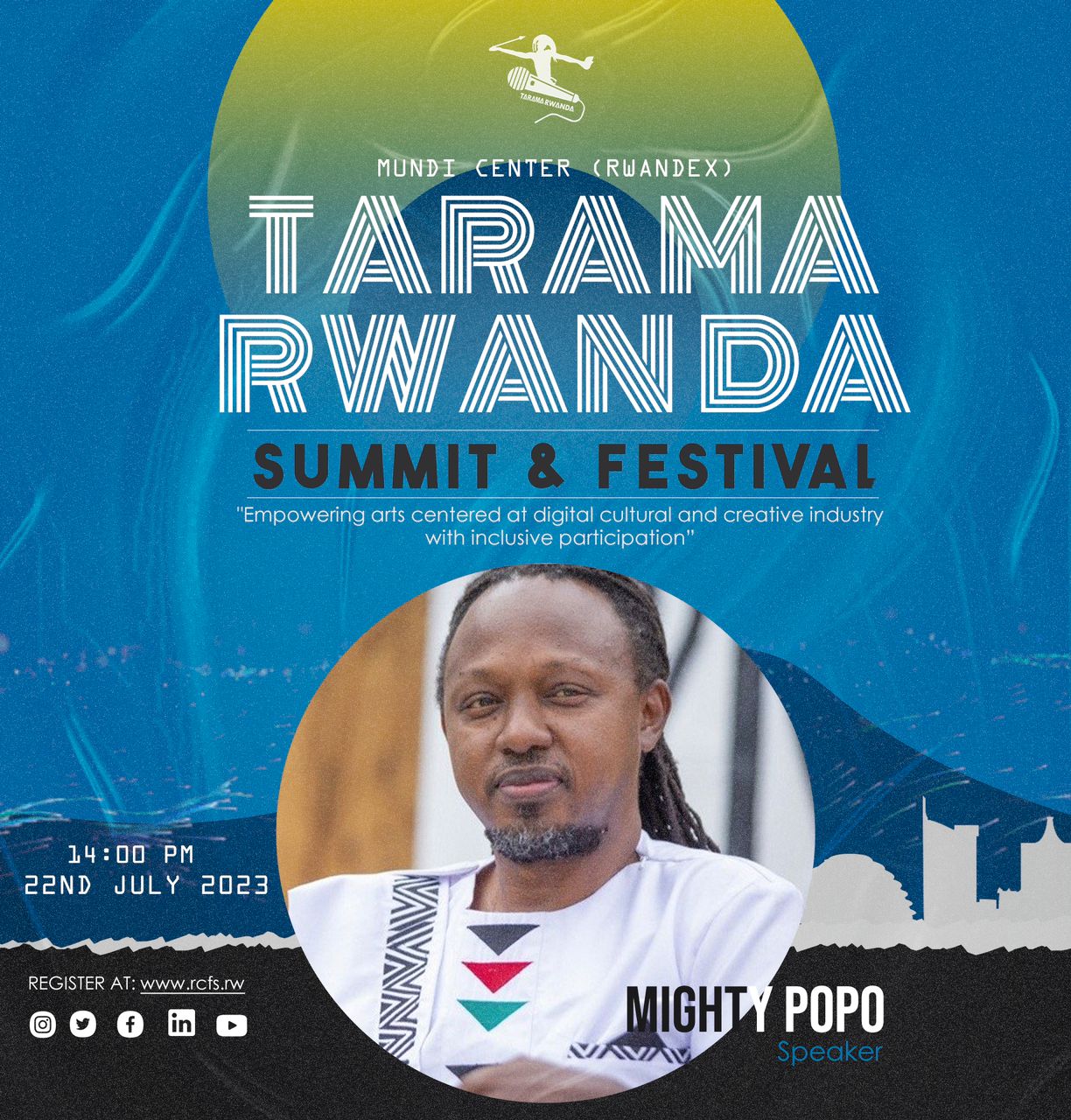
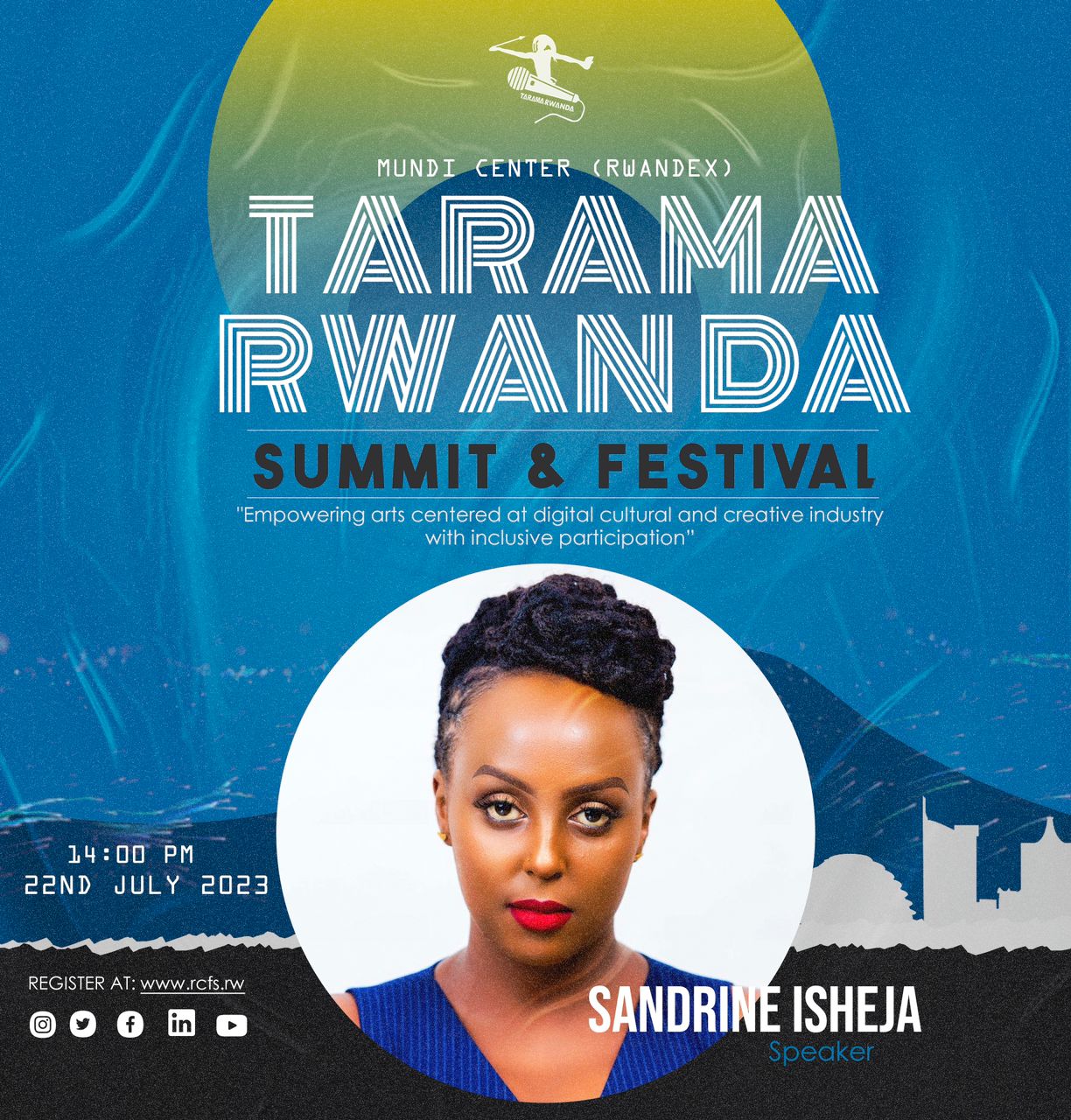
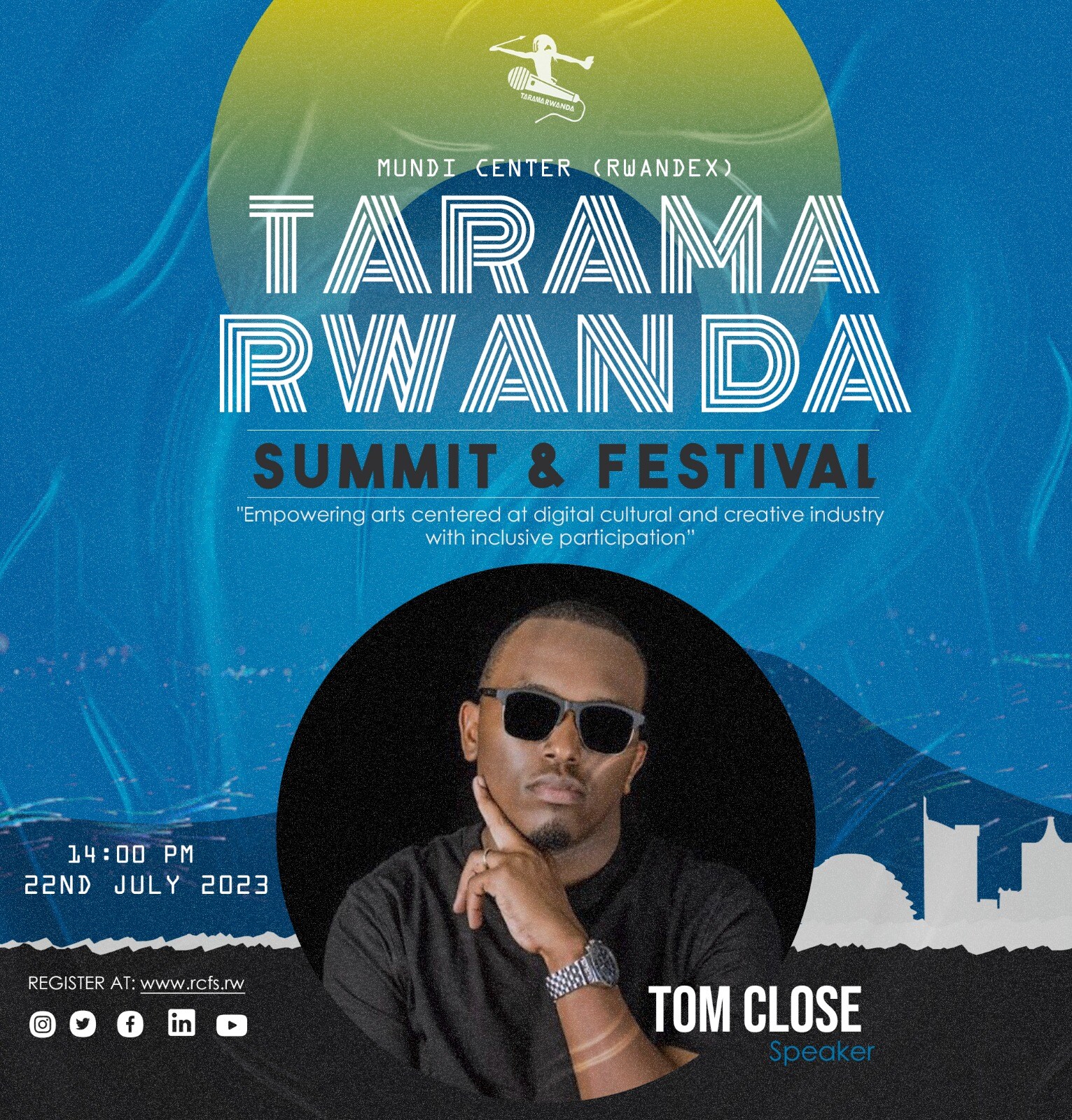
Complementing the summit, the Tarama Rwanda Festival will be a showcasing platform for talents across various artistic domains. From captivating music performances and side-splitting comedy acts to awe-inspiring fashion shows, dances, exhibitions, and much more. This is the moment where Rwandan Super artists will ignite the stage, setting it ablaze with their unmatched talent, leveling up the entire Rwanda entertainment industry, and spreading inspiration and Joy.
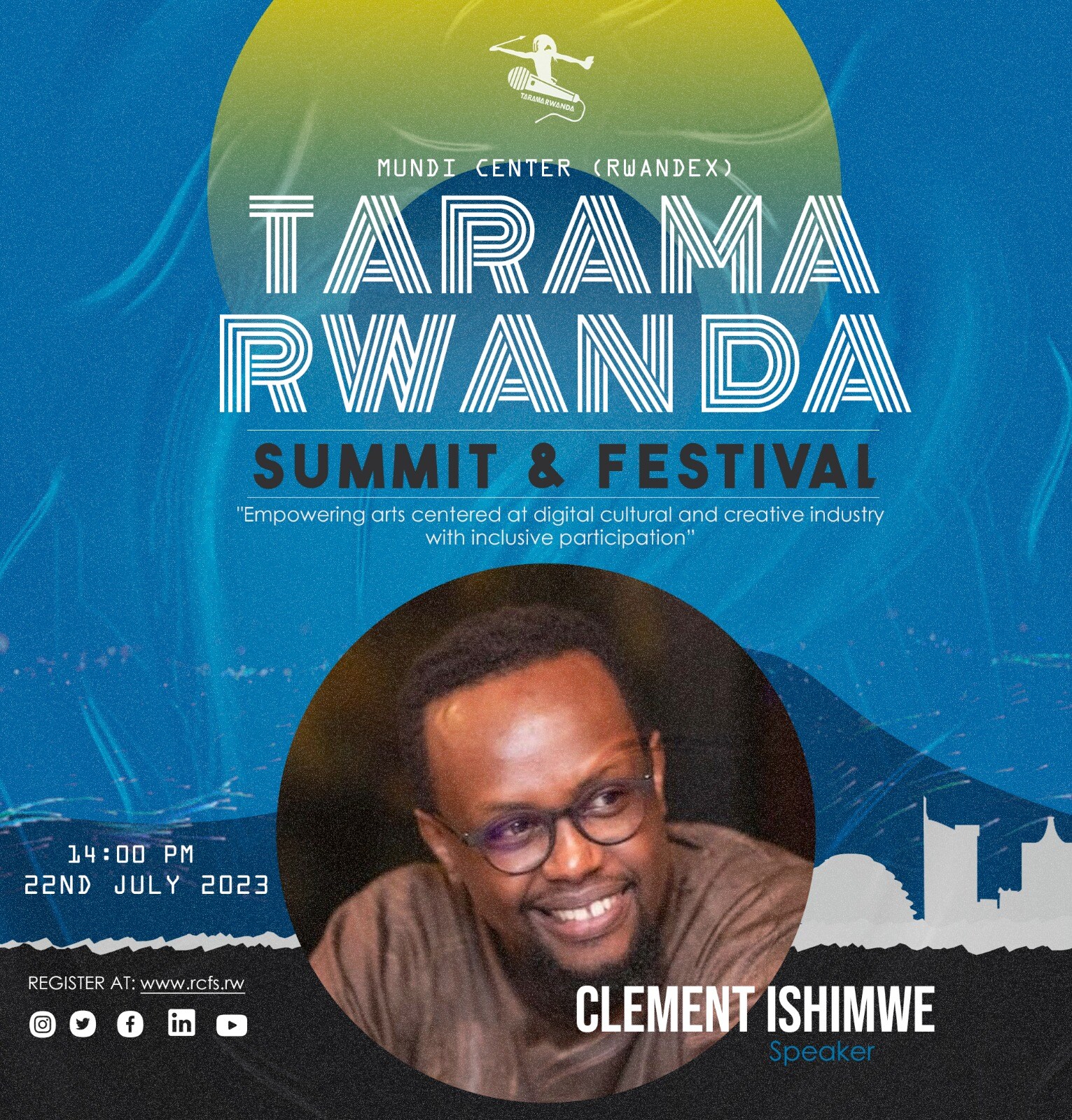
By attending both the summit and the festival, you'll become an integral part of an exceptional movement, contributing not only to the success of this remarkable event but also to the nurturing and empowerment of Rwanda's emerging talents. We eagerly await your presence at the Tarama Rwanda Summit and Festival, where minds will ignite, talents will flourish, and Rwanda's future will shine brighter than ever before.
Other speakers:
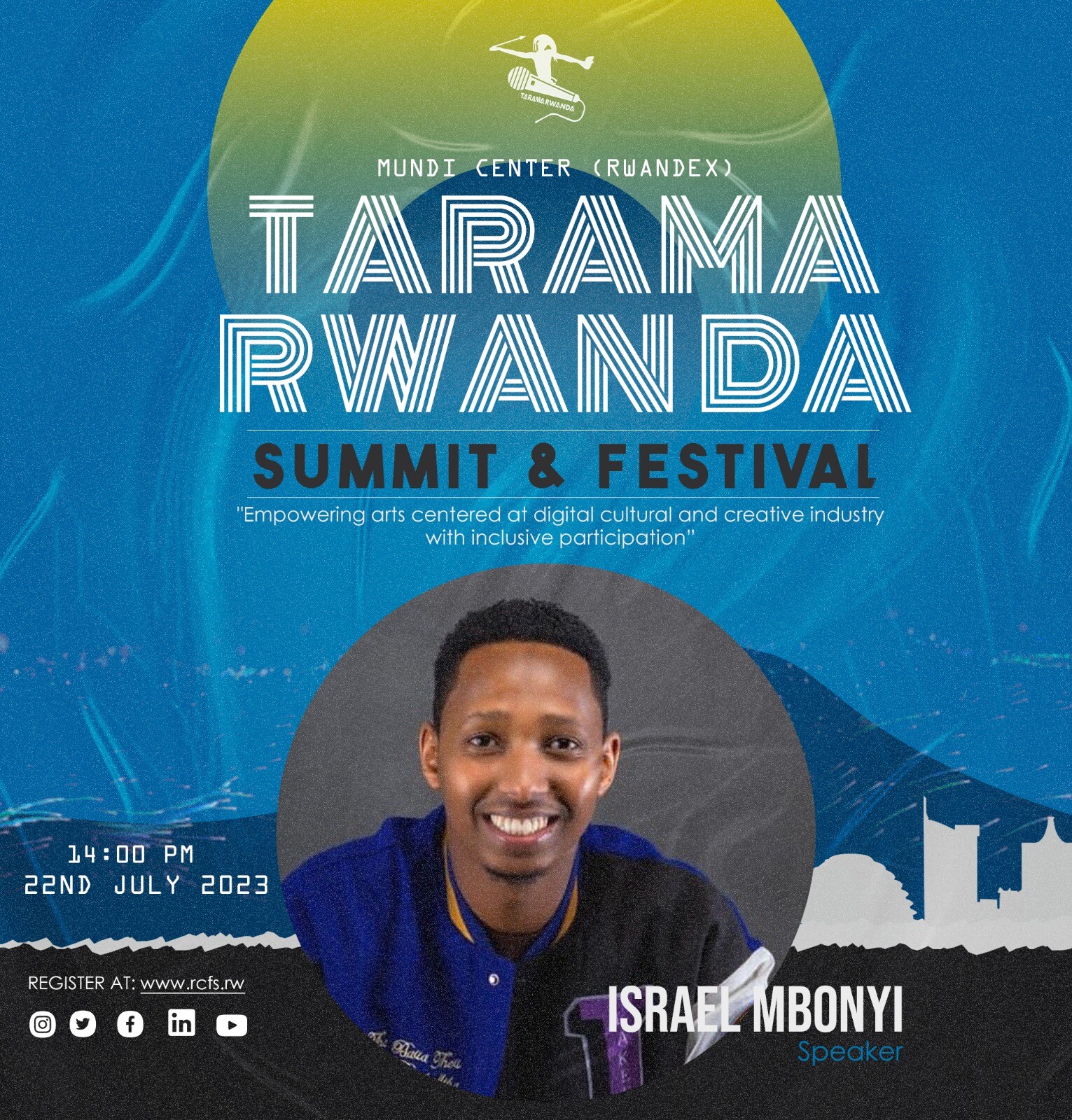
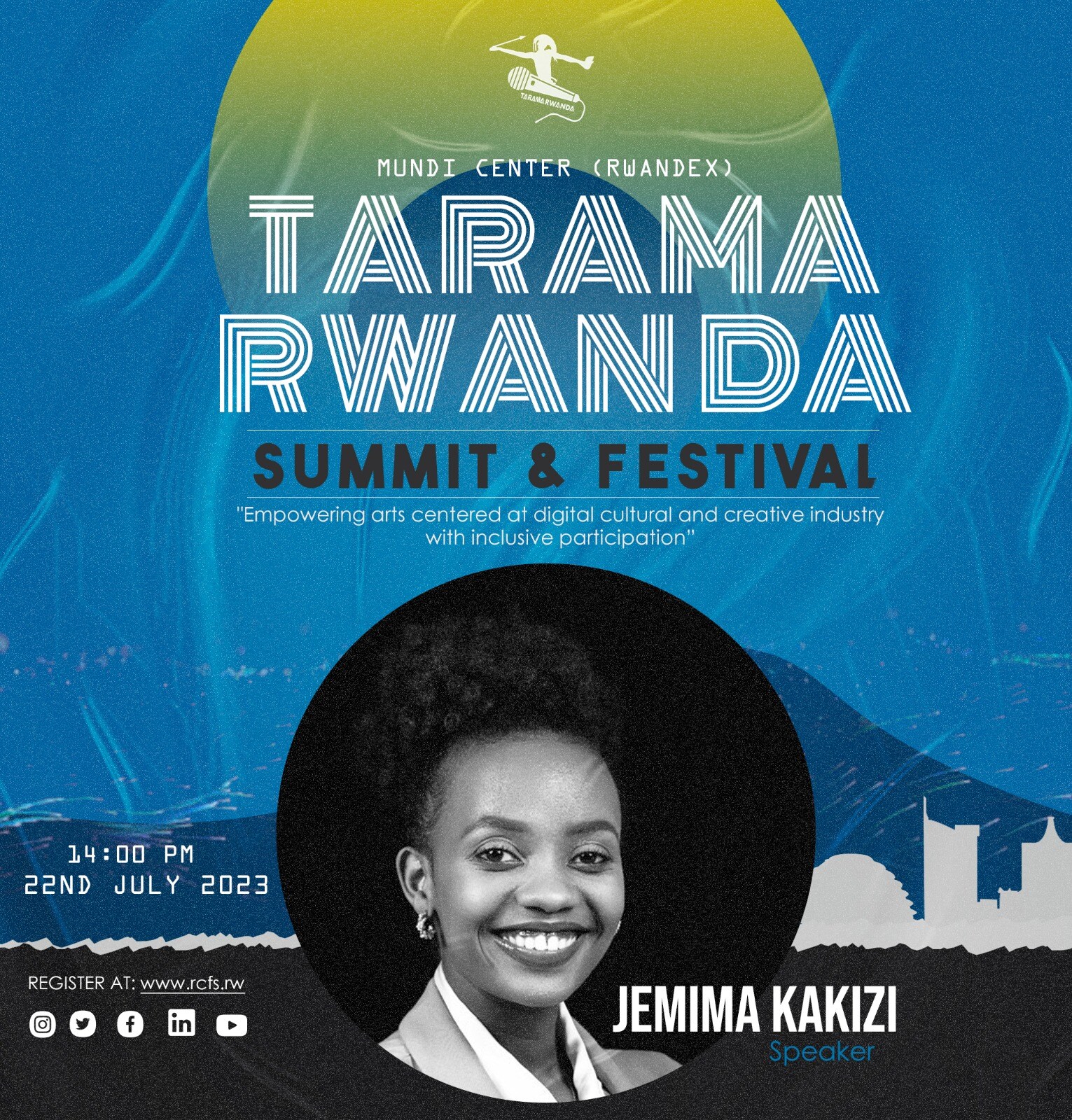
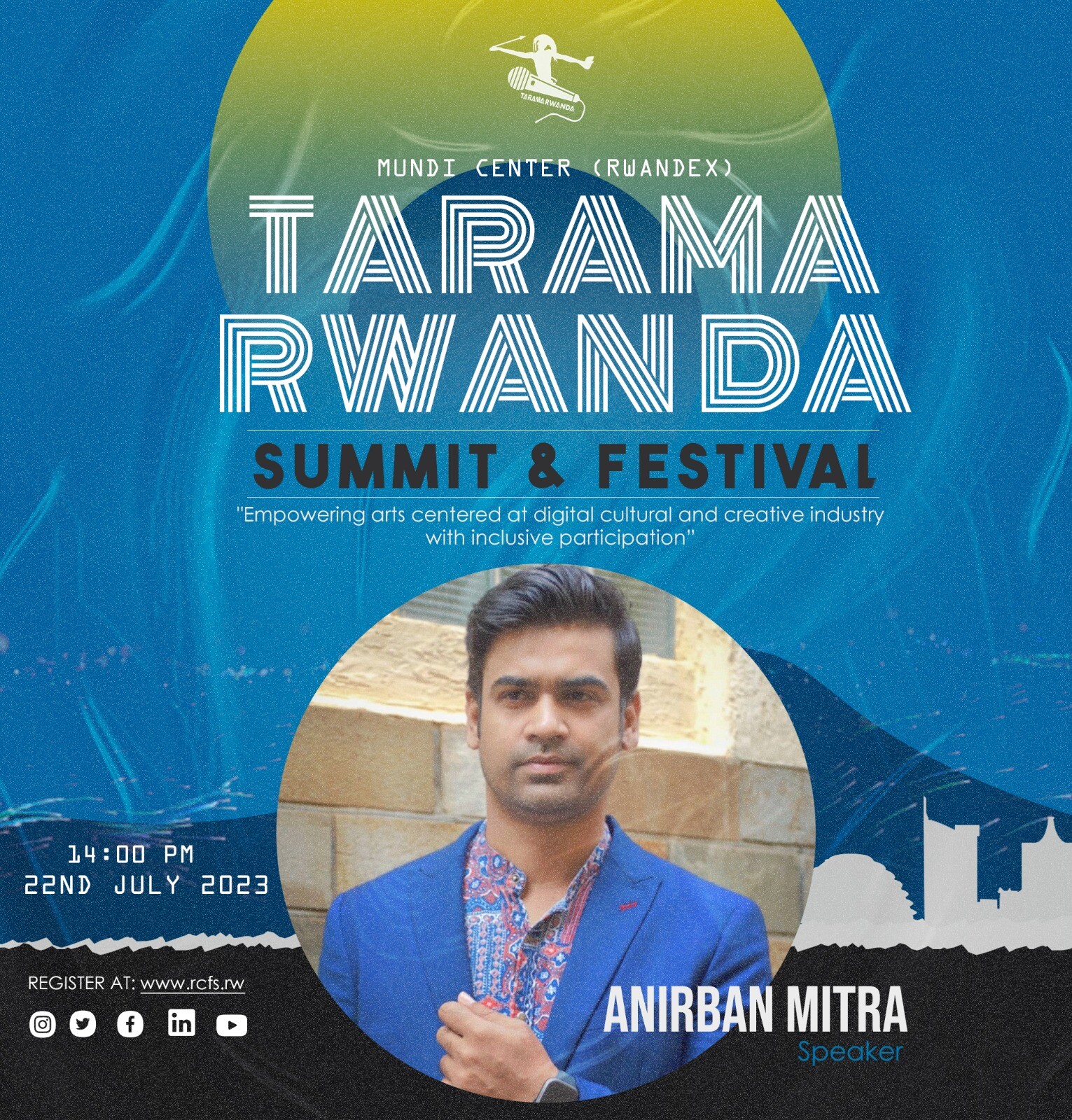
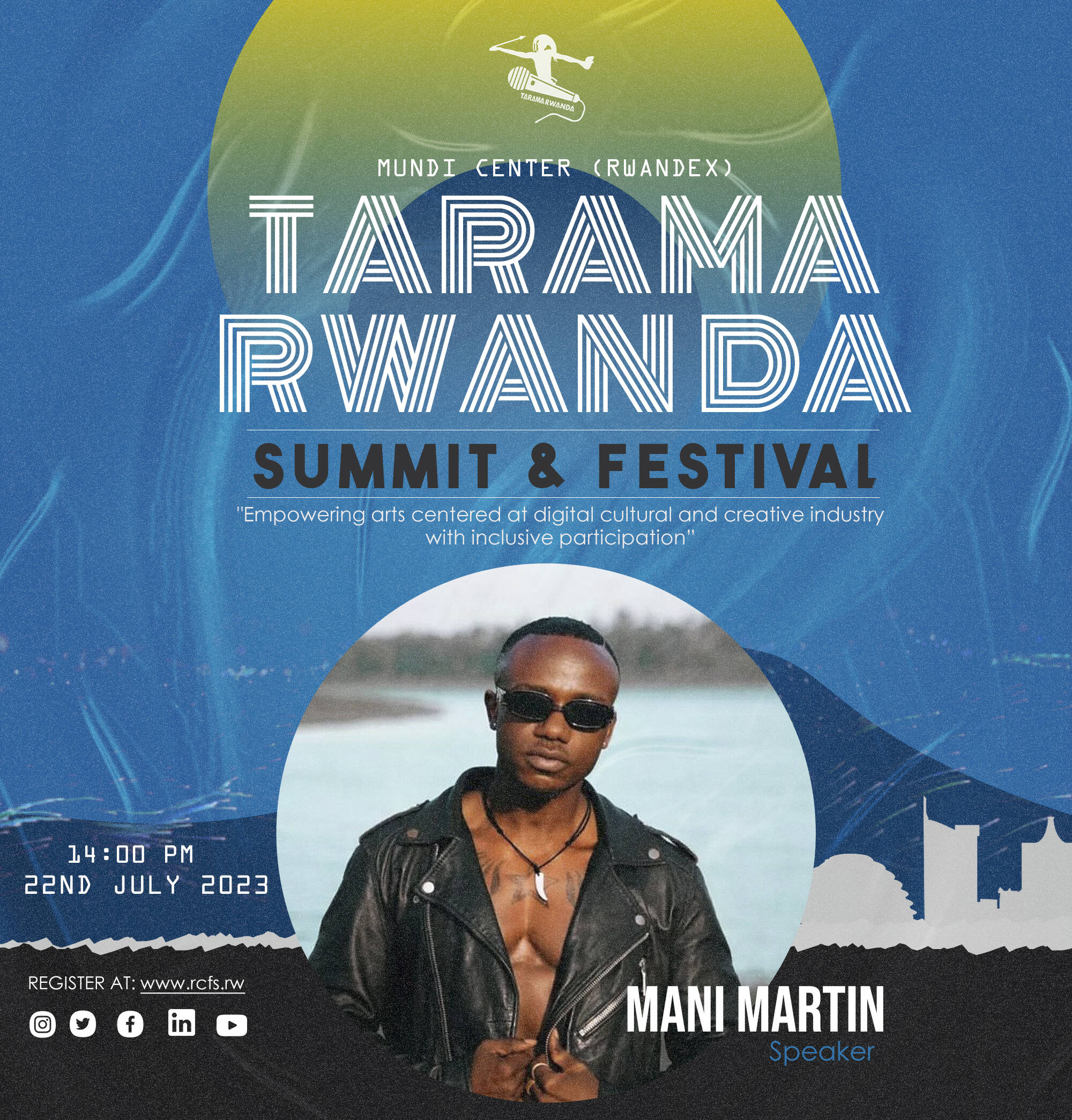
Guests Artists:
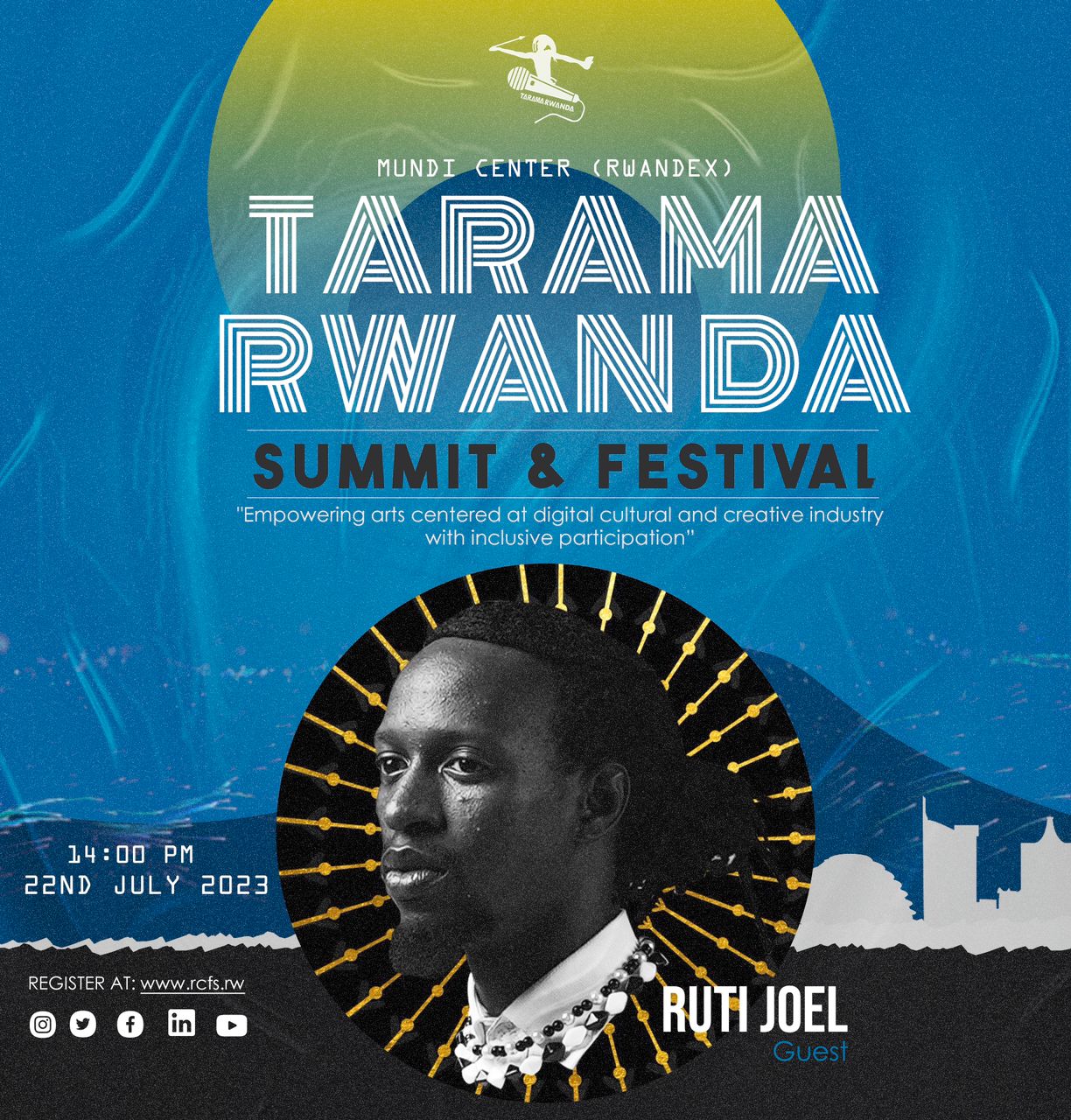
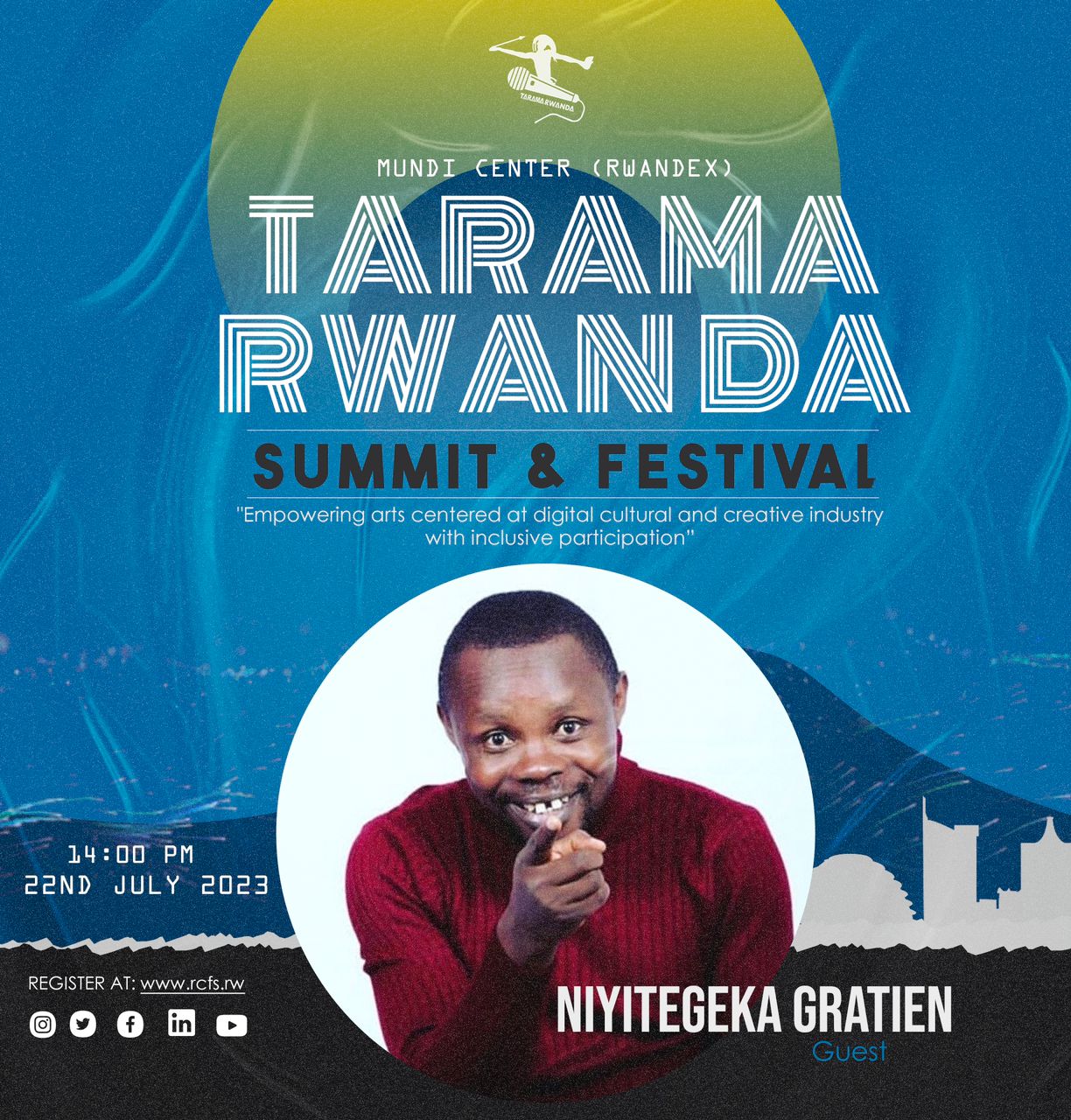
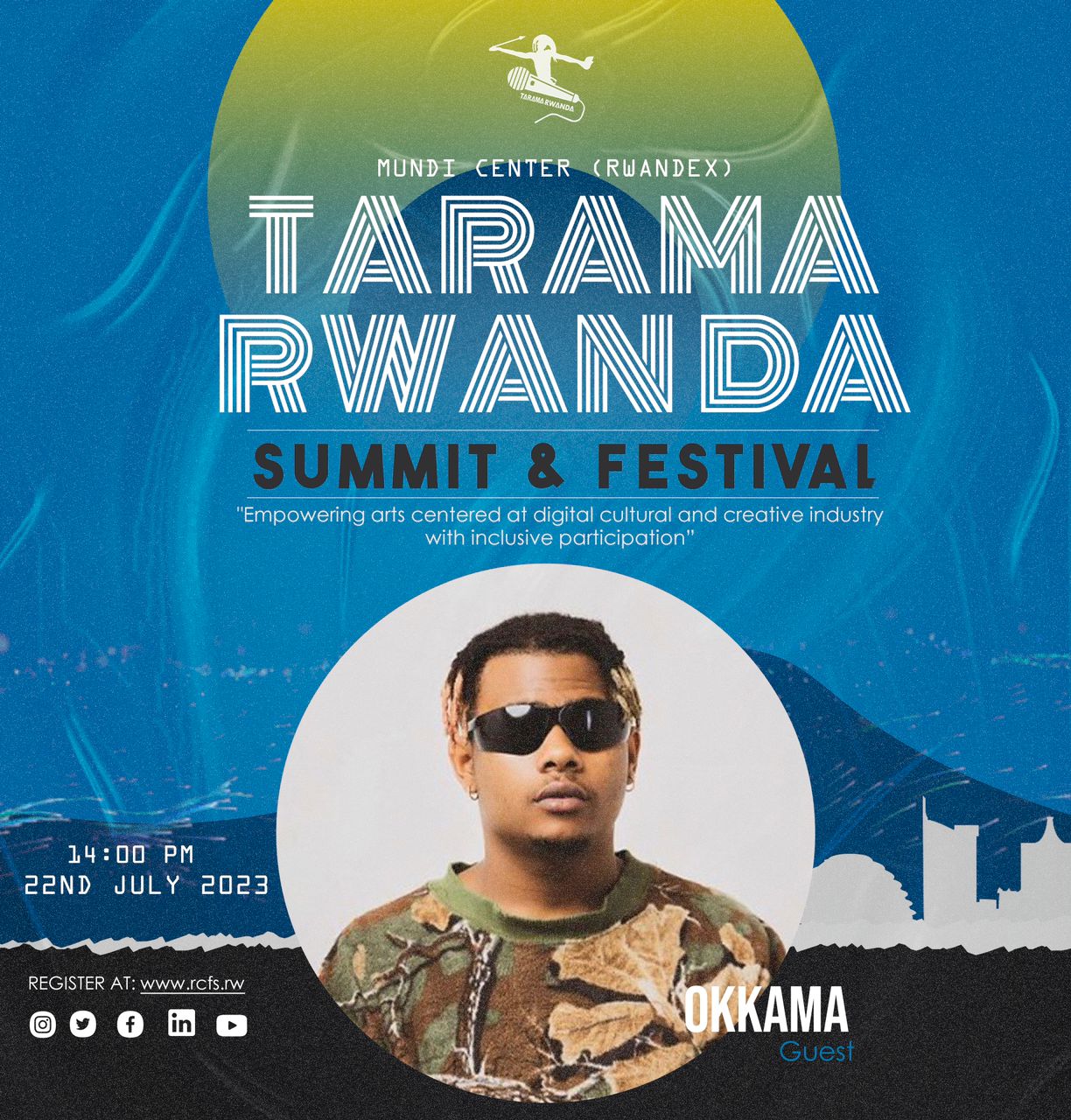
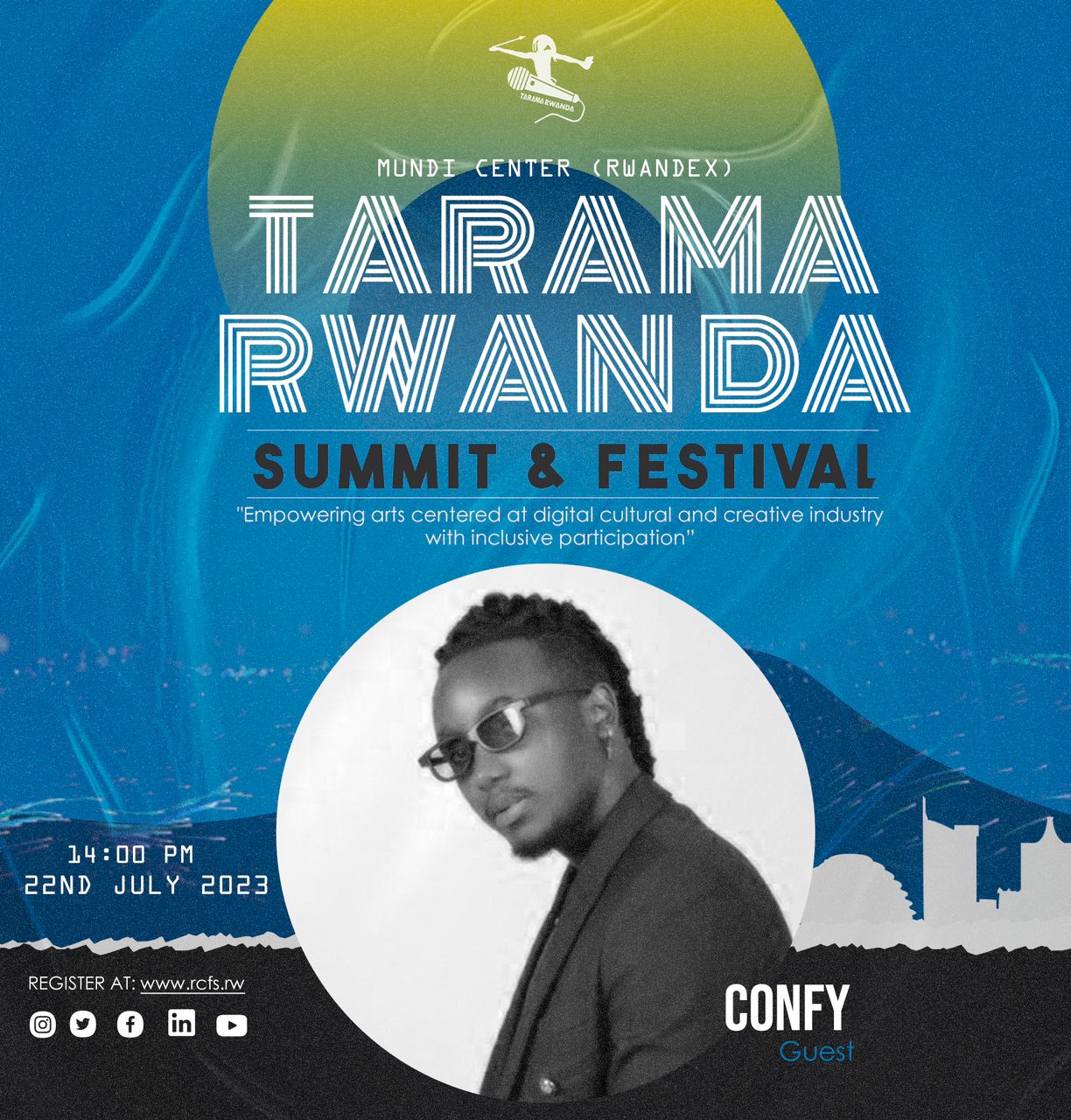
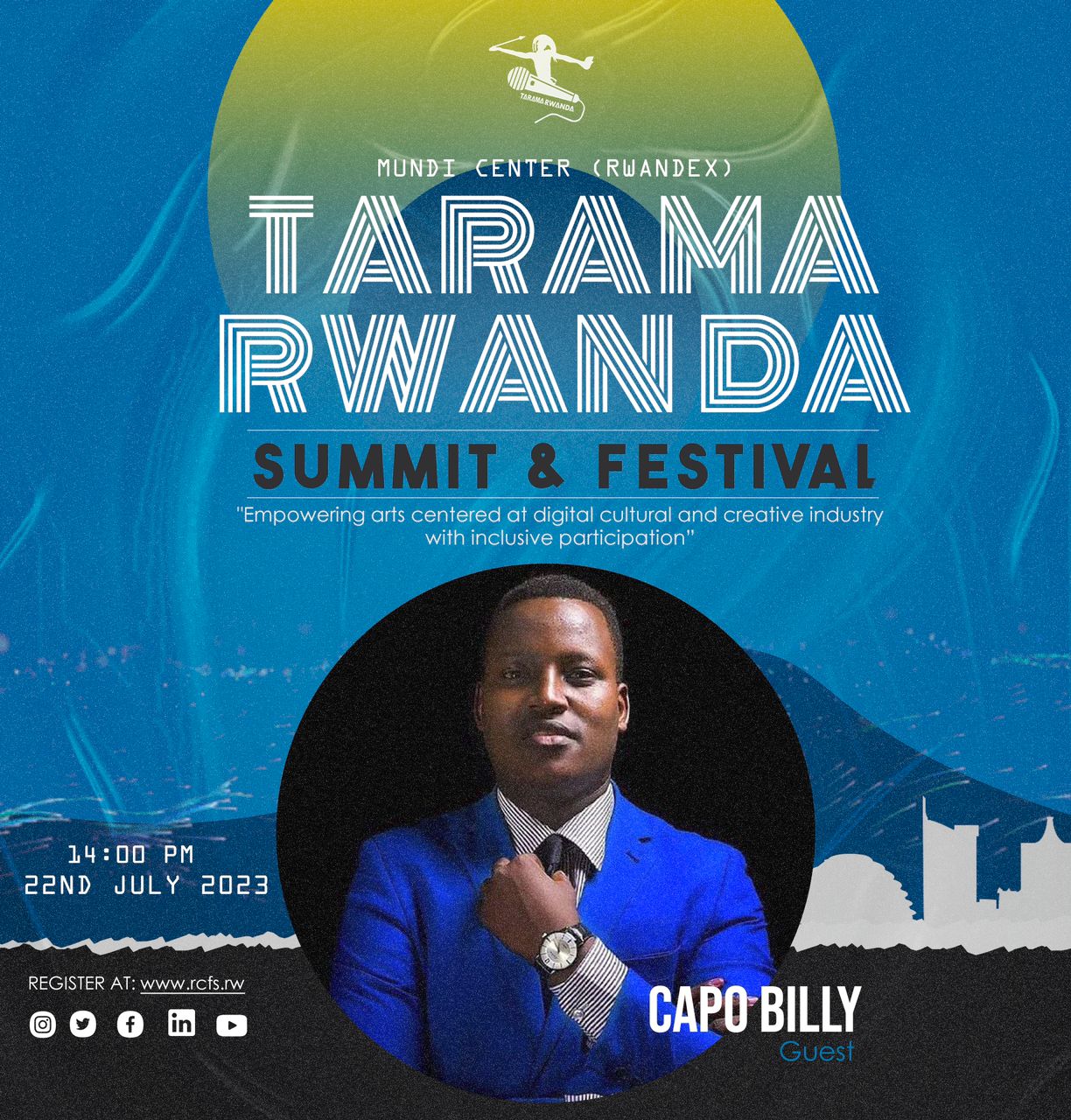
MC
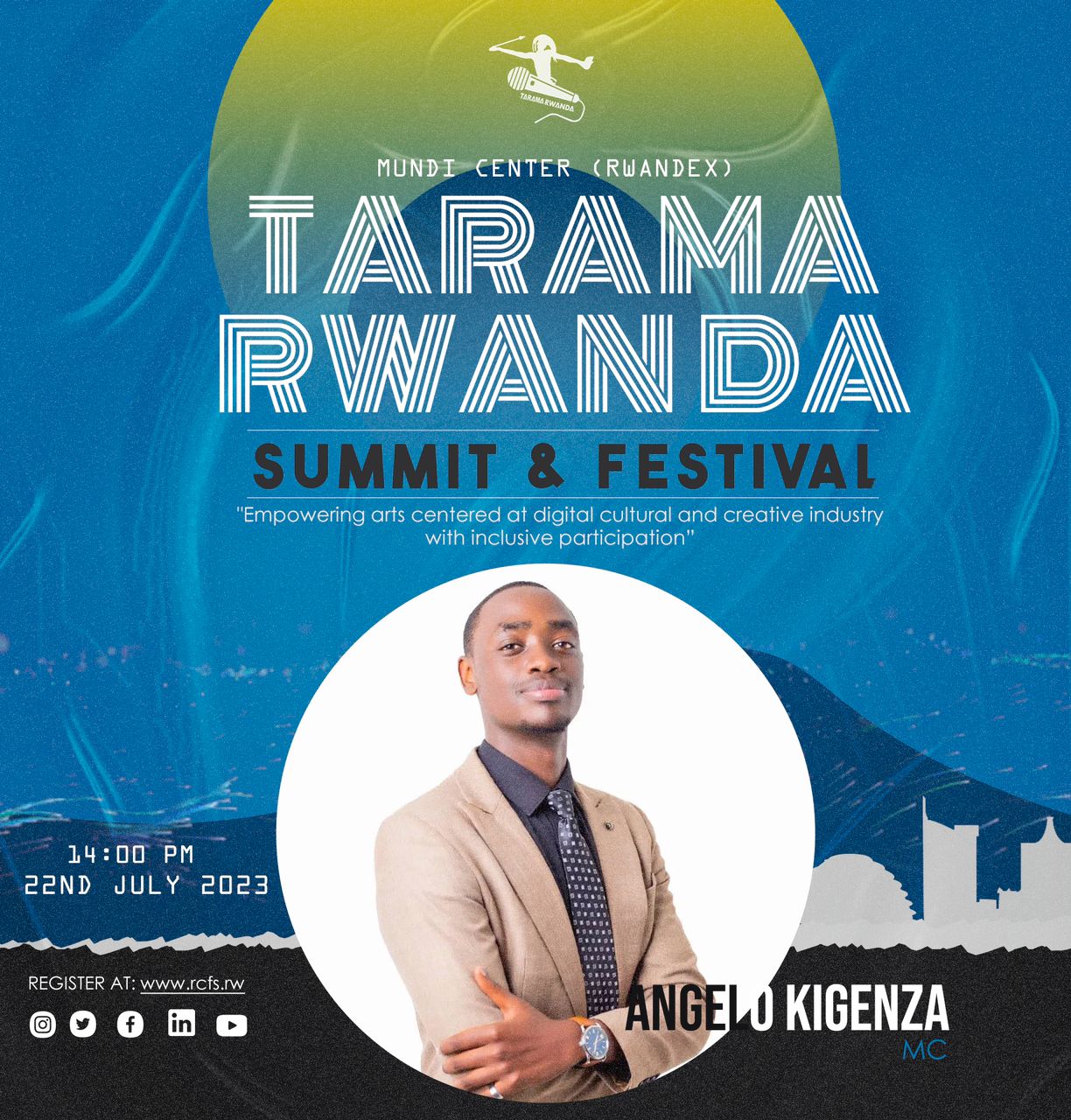
Click Here to Register For more information about the event contact: This email address is being protected from spambots. You need JavaScript enabled to view it. / +250 787 759 316
“Music is as art as fashion, and fusion of artwork makes better output. Today’s music needs fashion to boost quickly and engage as well as hire a lot of related artists both in fashion designing and creative”, said Kageruka Wilson, the CEO & Founder of Tarama Rwanda Initiative
 Mr. Wilson KAGERUKA received an award as the best entrepreneur of 2022, an award given by His Excellence Ambassador Dr. Ron Adam; the ambassador of the state of Israel in Rwanda, on the behalf of Agahozo-Shalom Youth Village.
Mr. Wilson KAGERUKA received an award as the best entrepreneur of 2022, an award given by His Excellence Ambassador Dr. Ron Adam; the ambassador of the state of Israel in Rwanda, on the behalf of Agahozo-Shalom Youth Village.
Fashion and Music Historical Background
Looking back at Rwanda's history, music and fashion have been together. Historically, fashion plays a big role in the development of Rwandan traditional dance and cultural performances.
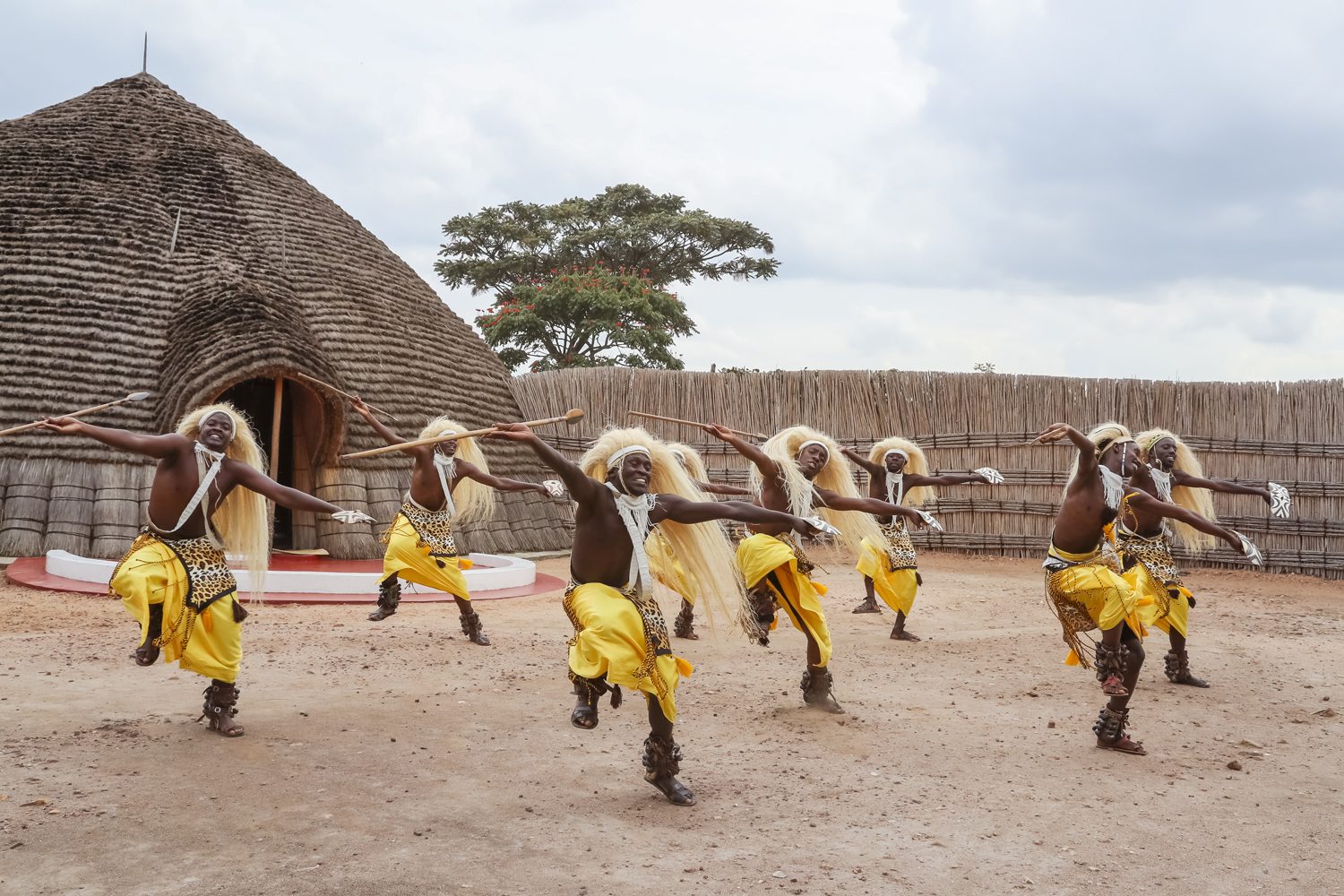 PHOTO INTERNET: Rwanda Tradition troupe, male dancers wearing cultural outfits
PHOTO INTERNET: Rwanda Tradition troupe, male dancers wearing cultural outfits
During the ceremony at the King’s palace known as Imbwami, when male dancers known as Intore were dancing and performing for the King and Queen used to wear traditional outfits known as Inkindi made out of animals skin or backcloths and Ibikubwe or Ibitako made out of beads. Right hand holding a speaker and another left hand a shield and covering their heads with Umugara made out of fibres. While female dancers and singers used to wear outfits known as Umucyenyero or Umushanana made out of animals' skin or backcloths.
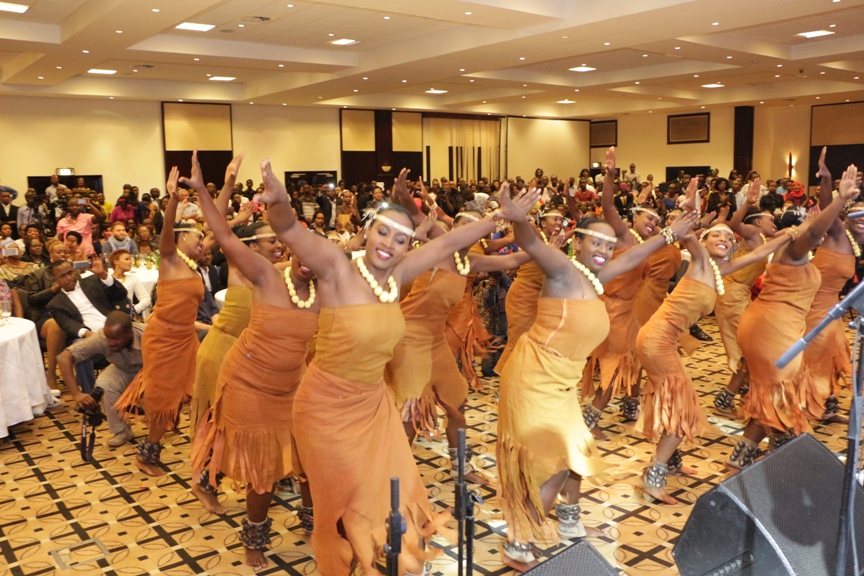 PHOTO INTERNET: Rwanda Tradition troupe/ Urukerereza, female dancers wearing cultural outfits made out of backcloths called "Inshabure"
PHOTO INTERNET: Rwanda Tradition troupe/ Urukerereza, female dancers wearing cultural outfits made out of backcloths called "Inshabure"
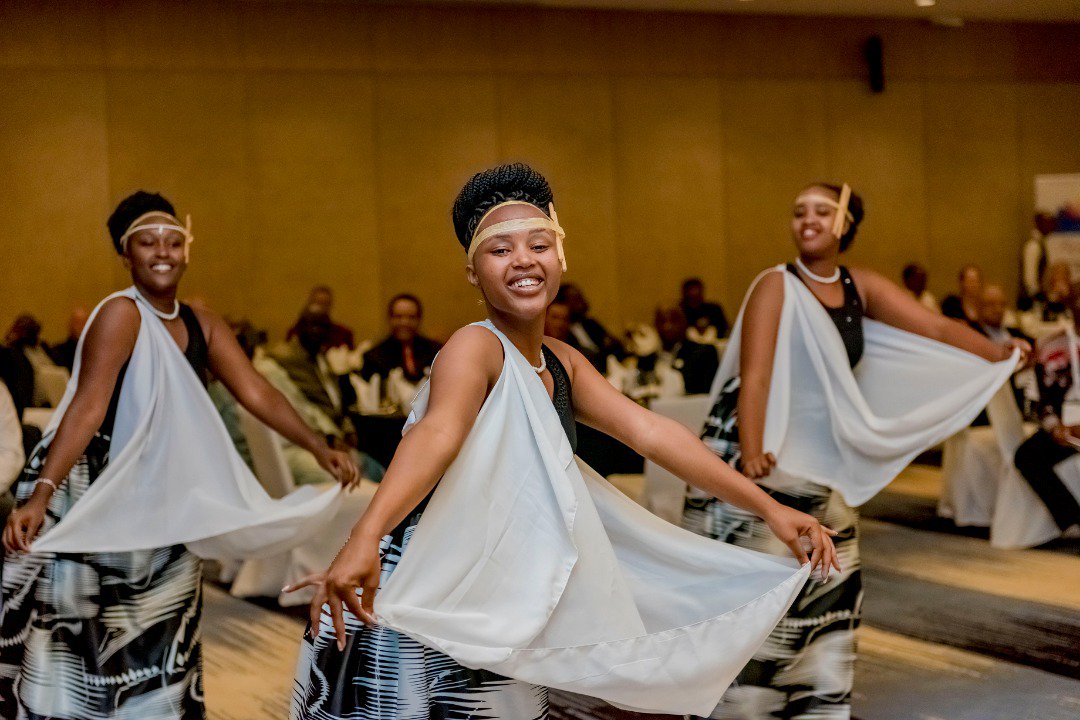 PHOTO INTERNET: Rwanda Tradition troupe/Urukerereza, female dancers wearing cultural outfits ( umushanana & Umucyenyero & Umwitero)
PHOTO INTERNET: Rwanda Tradition troupe/Urukerereza, female dancers wearing cultural outfits ( umushanana & Umucyenyero & Umwitero)
In the modern world, the role of fashion in Rwanda’s music was recognized during and from the colonial time when Rwandans started to adopt some other African styles and Western and European styles. From the independence of 1962, the Rwanda national troupe known as Urukerereza developed its fashion styles, especially during performances at the President's family and government events. Other local artists dancers and singers like impala orchestral and Amasimbi n’ Amakombe choir and culture troupe founded by Rugamba Cyprien and his wife Daphrose Rugamba also are among others who proved the role of fashion in the development of Rwanda Music
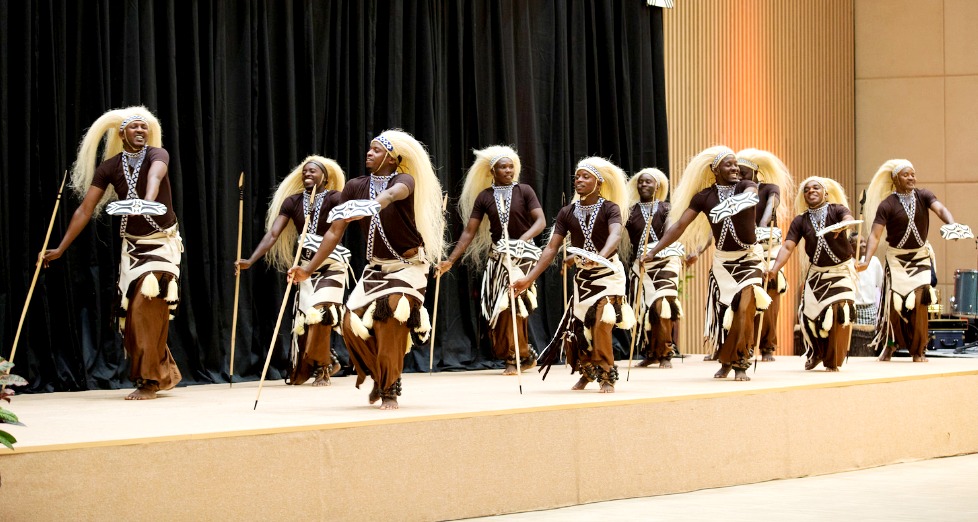 PHOTO INTERNET: Rwanda Tradition troupe is known by the name Urukerereza, male dancers wearing cultural outfits holding spears and shields and covering their heads with "Umugara"
PHOTO INTERNET: Rwanda Tradition troupe is known by the name Urukerereza, male dancers wearing cultural outfits holding spears and shields and covering their heads with "Umugara"
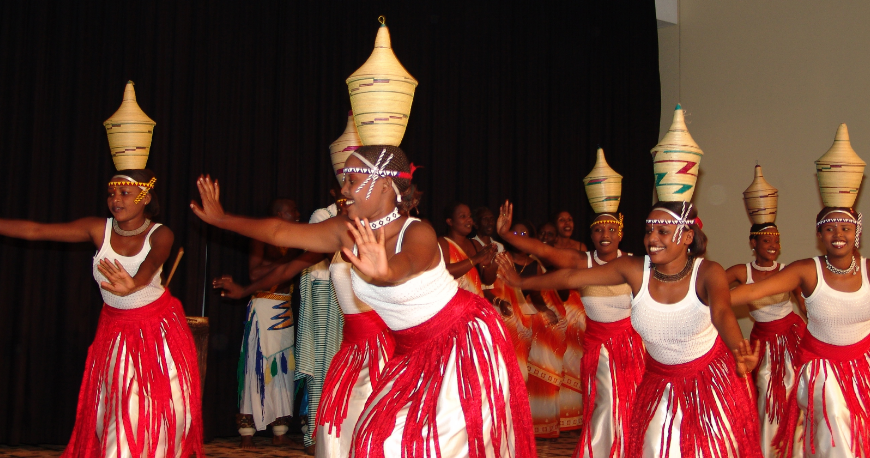 PHOTO INTERNET: Rwanda Tradition troupe is known by the name Urukerereza, female dancers wearing cultural outfits made out of modern fabrics. They are carrying baskets on their heads called " Agaseke"
PHOTO INTERNET: Rwanda Tradition troupe is known by the name Urukerereza, female dancers wearing cultural outfits made out of modern fabrics. They are carrying baskets on their heads called " Agaseke"
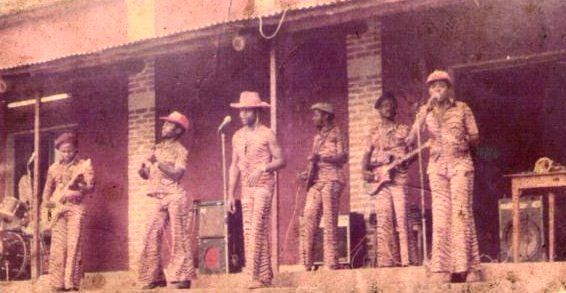 PHOTO INTERNET: Orchestral Impala wearing fashionable clothes during their performances
PHOTO INTERNET: Orchestral Impala wearing fashionable clothes during their performances
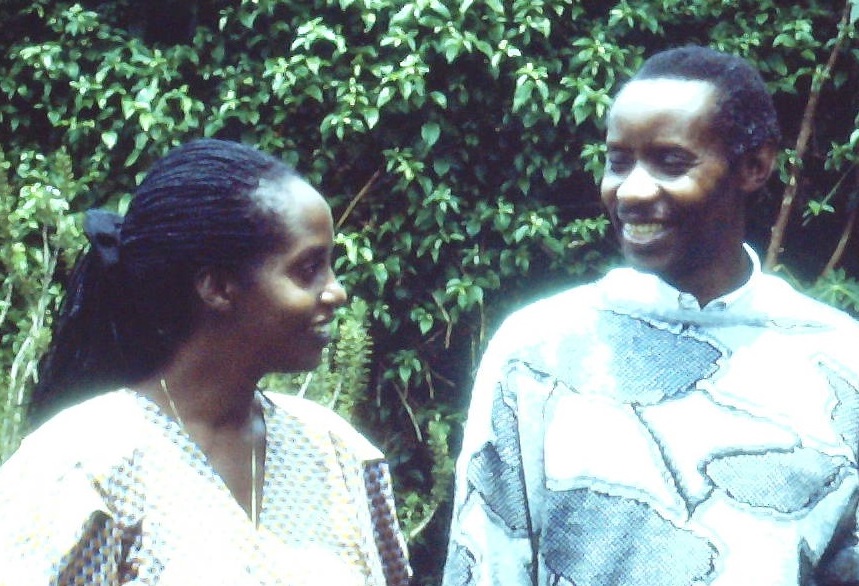
Cyprien und Daphrose Rugamba 1992 in ihrem Garten in Kigali
Fashion and Music Today: What is Tarama Rwanda Initiative and its Role?
15 years ago, there are tangible changes in the music industry because of fashion. However, many local artists continue to struggle by missing their uniqueness and creativity while preparing outfits to use in their video shooting and on their stage during their concerts.
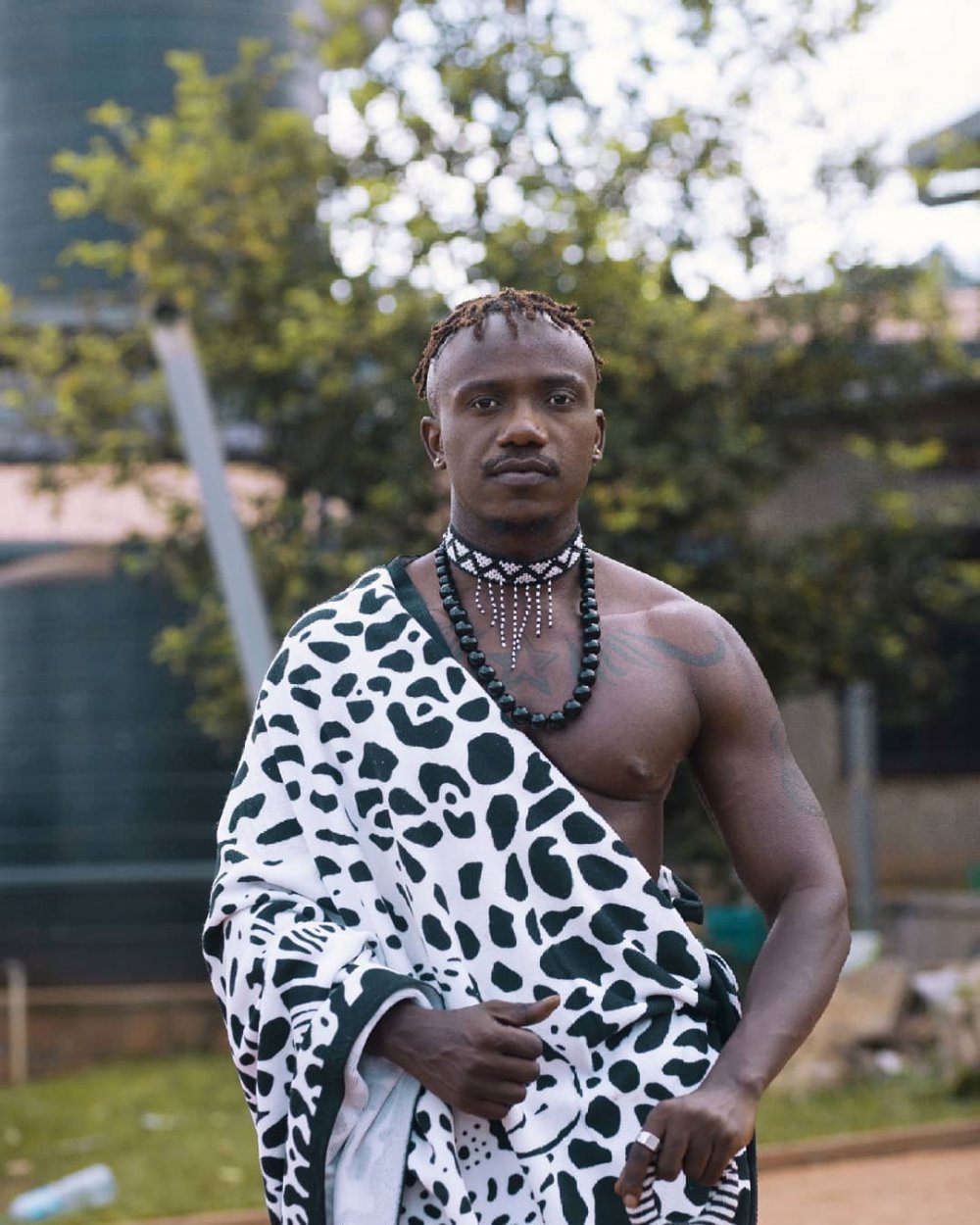
PHOTO INTERNET: Singer and songwriter Mr Mani Martin wearing a traditional outfit called "Umucyenyero"
To tackle this challenge, Tarama Rwanda Initiative in partnership with the Rwanda Cultural Fashion Show (RCFS) organized the discussions with the topic “The role of fashion in the development of Rwandan Music” to show local artists the role of fashion in the music industry and to share the opportunity available in Rwanda to improve their fashion styles.
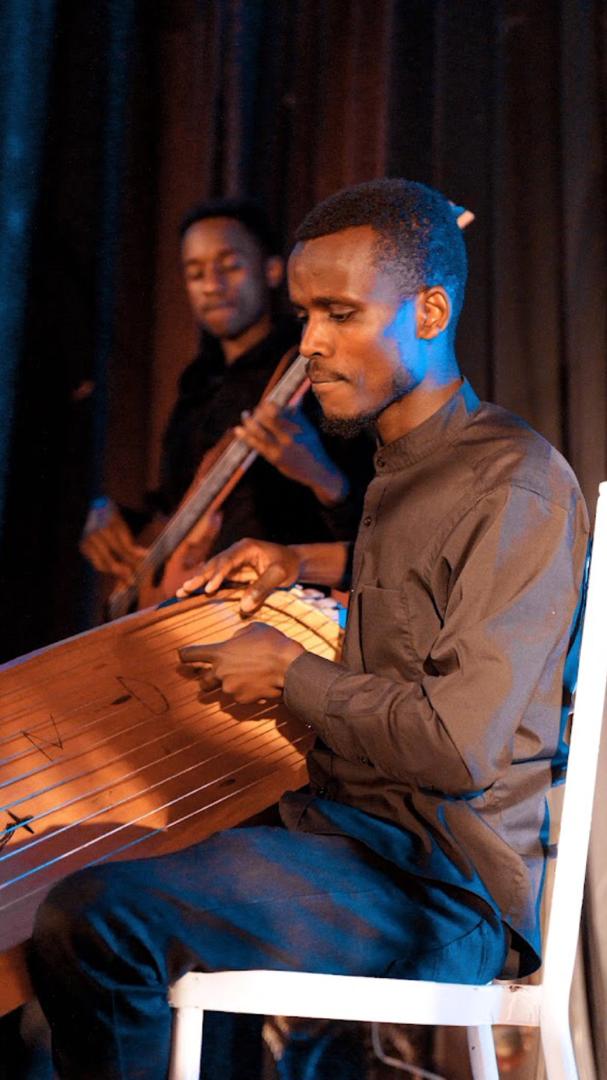 Mr NKUBA Patient from the Tarama Rwanda community playing, the Rwandan traditional musical instrument called "Inanga"
Mr NKUBA Patient from the Tarama Rwanda community playing, the Rwandan traditional musical instrument called "Inanga"
Tarama Rwanda Initiative is an organization founded by Kageruka Wilsom in August 2020. It aims to cultivate and enrich the pool of talented young individuals in Rwanda and empower them to play an active and impactful role in driving the social, cultural, and economic progress of the nation with a particular focus on the fields of arts, education, and health. Tarama Rwanda Initiative was aspired to organize a webinar about “The role of fashion in the development of Rwandan Music” to put together different stakeholders in the music and fashion industry and discuss various strategies to support each other. That will also reveal the contribution of each part in the development of the other. Kageruka Wilson, CEO& Founder of the Tarama Rwanda Initiative, wants to remind local artists how beautiful it is to wear locally made to promote made in Rwanda.
 Some of The members of the Tarama Rwanda Initiative during the workshop in Rwamagana District
Some of The members of the Tarama Rwanda Initiative during the workshop in Rwamagana District
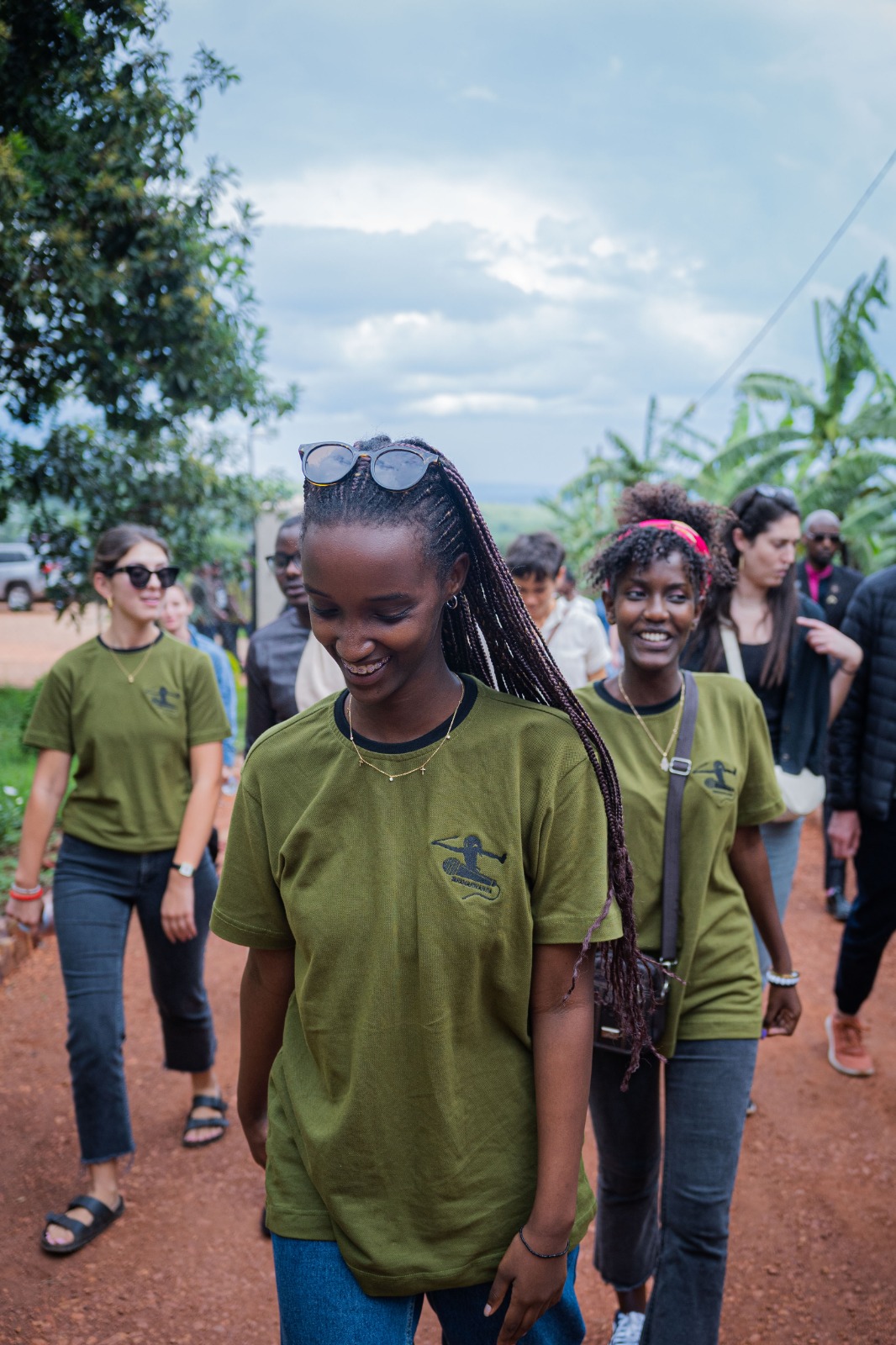
Among the Tarama Rwanda Initiative members, they are women as the sign of empowering young and upcoming women artists
Tarama Rwanda Initiative has 25 team members and an entire community of artists, creative designers, and entrepreneurs where more than 400 people are a part of this leading platform. Tarama Rwanda organizes mentorship programs, incubation programs, both local communities and high school Tours countrywide, National arts Competitions, and Music concerts with the purpose of nurturing Rwandan Hidden Talents. “We did a lot, so far 5 mentorship-based events that gathered more than 8000 youths have been organized, 3 Tarama Rwanda Night events and 8 High school Tours have been conducted,” said Mr Kageruka.

The members of the Tarama Rwanda Initiative with their partners including His Excellence Ambassador Dr. Ron Adam; the ambassador of the state of Israel in Rwanda
How far is Tarama Rwanda Initiative?
Since Tarama started, its founder Mr. Wilson KAGERUKA received an award as the best Entrepreneur of 2022, an award given by His Excellence Ambassador Dr. Ron Adam; the ambassador of the state of Israel in Rwanda, this award was given on behalf of the Agahozo-Shalom Youth Village. Mr Wilson is happy for what his organization had done so far but he see no collaboration at all “The industry lacks collaboration among the artists in both fields and this will impact the rate of creativity and productivity in Outputs”.
Mr. Wilson KAGERUKA received an award as the best Entrepreneur of 2022, an award given by His Excellence Ambassador Dr. Ron Adam; the ambassador of the state of Israel in Rwanda, on the behalf of Agahozo-Shalom Youth Village.
He believes that collaboration and flexibility to learn from each other and share experiences is the key for musicians and fashion designers to develop their careers. This coming webinar is the opening point to the big projects and sustainable partnerships between musicians and fashioners.
The event of 26th March 2023 will start at 4pm and it will discuss:
- The success journey of both Rwanda's fashion and music sectors,
- Effect of Covid-19 on both music and fashion related creative,
- The impact of quality music videos on the international market,
- How better music artists can collaborate with fashion designers and dancers to produce high-standard videos and
- The Visit Rwanda / Made in Rwanda campaigns in artists through music masterpieces.
Anyone who is willing to participate in the event can visit here to register. Tarama Rwanda together with the Rwanda Cultural Fashion Show together and other partners will make sure that the event went smoothly and will share the key takeaways with everyone.
Read more about What Makes Traditional Dances in Rwanda Unique?
By Florence Niyigena I Content creator: Rwanda Cultural Fashion Show
“Music is as art as fashion, and fusion of artwork makes better output. Today’s music needs fashion to boost quickly and engage as well as hire a lot of related artists both in fashion designing and creative”, said Kageruka Wilson, the CEO & Founder of Tarama Rwanda Initiative
 Mr. Wilson KAGERUKA received an award as the best entrepreneur of 2022, an award given by His Excellence Ambassador Dr. Ron Adam; the ambassador of the state of Israel in Rwanda, on behalf of Agahozo-Shalom Youth Village.
Mr. Wilson KAGERUKA received an award as the best entrepreneur of 2022, an award given by His Excellence Ambassador Dr. Ron Adam; the ambassador of the state of Israel in Rwanda, on behalf of Agahozo-Shalom Youth Village.
Fashion and Music Historical Background
Looking back at Rwanda's history, music and fashion have been together. Historically, fashion plays a big role in the development of Rwandan traditional dance and cultural performances.
 PHOTO INTERNET: Rwanda Tradition troupe, male dancers wearing cultural outfits
PHOTO INTERNET: Rwanda Tradition troupe, male dancers wearing cultural outfits
During the ceremony at the King’s palace known as Imbwami, when male dancers known as Intore were dancing and performing for the King and Queen used to wear traditional outfits known as Inkindi made out of animals skin or backcloths and Ibikubwe or Ibitako made out of beads. Right hand holding a speaker and another left hand a shield and covering their heads with Umugara made out of fibres. While female dancers and singers used to wear outfits known as Umucyenyero or Umushanana made out of animals' skin or backcloths.
 PHOTO INTERNET: Rwanda Tradition troupe/ Urukerereza, female dancers wearing cultural outfits made out of backcloths called "Inshabure "
PHOTO INTERNET: Rwanda Tradition troupe/ Urukerereza, female dancers wearing cultural outfits made out of backcloths called "Inshabure "
 PHOTO INTERNET: Rwanda Tradition troupe/Urukerereza, female dancers wearing cultural outfits ( umushanana & Umucyenyero & Umwitero)
PHOTO INTERNET: Rwanda Tradition troupe/Urukerereza, female dancers wearing cultural outfits ( umushanana & Umucyenyero & Umwitero)
In the modern world, the role of fashion in Rwanda’s music was recognized during and from the colonial time when Rwandans started to adopt some other African styles and Western and European styles. From the independence of 1962, the Rwanda national troupe known as Urukerereza developed its fashion styles, especially during performances at the President's family and government events. Other local artists dancers and singers like impala orchestral and Amasimbi n’ Amakombe choir and culture troupe founded by Rugamba Cyprien and his wife Daphrose Rugamba also are among others who proved the role of fashion in the development of Rwanda Music
 PHOTO INTERNET: Rwanda Tradition troupe is known by the name Urukerereza, male dancers wearing cultural outfits holding spears and shields and covering their heads with "Umugara"
PHOTO INTERNET: Rwanda Tradition troupe is known by the name Urukerereza, male dancers wearing cultural outfits holding spears and shields and covering their heads with "Umugara"
 PHOTO INTERNET: Rwanda Tradition troupe is known by the name Urukerereza, female dancers wearing cultural outfits made out of modern fabric. They are carrying baskets on their heads called " Agaseke"
PHOTO INTERNET: Rwanda Tradition troupe is known by the name Urukerereza, female dancers wearing cultural outfits made out of modern fabric. They are carrying baskets on their heads called " Agaseke"
 PHOTO INTERNET: Orchestral Impala wearing fashionable clothes during their performances
PHOTO INTERNET: Orchestral Impala wearing fashionable clothes during their performances

Cyprien und Daphrose Rugamba 1992 in ihrem Garten in Kigali
Fashion and Music Today: What is Tarama Rwanda Initiative and its Role?
15 years ago, there are tangible changes in the music industry because of fashion. However, many local artists continue to struggle by missing their uniqueness and creativity while preparing outfits to use in their video shooting and on their stage during their concerts.

PHOTO INTERNET: Singer and songwriter Mr Mani Martin wearing a traditional outfit called "Umucyenyero"
To tackle this challenge, Tarama Rwanda Initiative in partnership with the Rwanda Cultural Fashion Show (RCFS) organized the discussions with the topic “The role of fashion in the development of Rwandan Music” to show local artists the role of fashion in the music industry and to share the opportunity available in Rwanda to improve their fashion styles.
 Mr. NKUBA Patient from Tarama Rwanda Community playing, the Rwandan traditional musical instrument called "Inanga"
Mr. NKUBA Patient from Tarama Rwanda Community playing, the Rwandan traditional musical instrument called "Inanga"
Tarama Rwanda Initiative is an organization founded by Kageruka Wilsom in August 2020. It aims to cultivate and enrich the pool of talented young individuals in Rwanda and empower them to play an active and impactful role in driving the social, cultural, and economic progress of the nation with a particular focus on the fields of arts, education, and health. Tarama Rwanda Initiative was aspired to organize a webinar about “The role of fashion in the development of Rwandan Music” to put together different stakeholders in the music and fashion industry and discuss various strategies to support each other. That will also reveal the contribution of each part in the development of the other. Kageruka Wilson, CEO& Founder of the Tarama Rwanda Initiative, wants to remind local artists how beautiful it is to wear locally made to promote made in Rwanda.
 Some of The members of the Tarama Rwanda Initiative during the workshop in Rwamagana District
Some of The members of the Tarama Rwanda Initiative during the workshop in Rwamagana District

Among the Tarama Rwanda Initiative members, they are women as the sign of empowering young and upcoming women artists
Tarama Rwanda Initiative has 25 team members and an entire community of artists, creative designers, and entrepreneurs where more than 400 people are a part of this leading platform. Tarama Rwanda organizes mentorship programs, incubation programs, both local communities and high school Tours countrywide, National arts Competitions, and Music concerts with the purpose of nurturing Rwandan Hidden Talents. “We did a lot, so far 5 mentorship-based events that gathered more than 8000 youths have been organized, 3 Tarama Rwanda Night events and 8 High school Tours have been conducted,” said Mr Kageruka.

The members of the Tarama Rwanda Initiative with their partners including His Excellence Ambassador Dr. Ron Adam; the ambassador of the state of Israel in Rwanda
How far is Tarama Rwanda Initiative?
Since Tarama started, its founder Mr. Wilson KAGERUKA received an award as the best Entrepreneur of 2022, an award given by His Excellence Ambassador Dr. Ron Adam; the ambassador of the state of Israel in Rwanda, this award was given on behalf of the Agahozo-Shalom Youth Village. Mr Wilson is happy for what his organization had done so far but he sees no collaboration at all “The industry lacks collaboration among the artists in both fields and this will impact the rate of creativity and productivity in Outputs”.
Mr. Wilson KAGERUKA received an award as the best Entrepreneur of 2022, an award given by His Excellence Ambassador Dr. Ron Adam; the ambassador of the state of Israel in Rwanda, on the behalf of Agahozo-Shalom Youth Village.
He believes that collaboration and flexibility to learn from each other and share experiences is the key for musicians and fashion designers to develop their careers. This coming webinar is the opening point to the big projects and sustainable partnerships between musicians and fashioners.
The event of 26th March 2023 will start at 4pm and it will discuss:
- The success journey of both Rwanda's fashion and music sectors,
- Effect of Covid-19 on both Music and fashion related creative,
- The impact of quality music videos on the international market,
- How better music artists can collaborate with fashion designers and dancers to produce high-standard videos and
- The Visit Rwanda / Made in Rwanda campaigns in artists through usic masterpieces.
Anyone who is willing to participate in the event can visit here to register. Tarama Rwanda together with the Rwanda Cultural Fashion Show together and other partners will make sure that the event went smoothly and will share the key takeaways with everyone.
Read more about What Makes Traditional Dances in Rwanda Unique?
By Florence Niyigena I Content creator : Rwanda Cultural Fashion Show
Over the last decade, Africa’s fashion industries have come into the spotlight and their potential for powering economic growth and development continues to be evident. The desired development of Africa’s fashion industries also places a demand on countries, to build the capacity to achieve growth. With that in mind, the quantity, and more importantly, the quality of available labor supply becomes a crucial factor for African economies to reap full benefits from their fashion industries. In this week’s edition, we take a look at the current state of skills in Africa’s fashion industries and explore potential remedies.
The Current State of Skills in Africa’s Fashion Industries
Limited competencies
There is a lack of managerial competencies across the labor force available in Africa’s fashion industries. Most workers in these industries are therefore concentrated at the entry level, or floor management. Due to the nature of training opportunities available, there is often a need for substantial training even for line workers. A report on Kenya’s fashion industry noted that the country has the lowest value added per worker, owing to factors such as long change over times i.e. the time required for a line worker to adjust to a new production run.
Limited educational opportunities
Educational opportunities available for aspiring fashion entrepreneurs are quite limited. The African fashion education sector is fragmented, highly informal and lacks regulation. As such, a majority of African fashion schools that are operating are not accredited. They are also characterized by poorly structured curricula, outdated equipment and under qualified instructors. Underinvestment in technical vocational education institutions is also observed, further narrowing down the opportunities of building capacity of African fashion businesses.
Lack of on-job training
Availability of training opportunities is linked to the level of development of the industry and consequently of the economy. A key feature of most African countries is high informality which also speaks to the limited availability of decent and gainful employment opportunities, which are pivotal in providing learning opportunities. Resultantly, on the job training opportunities are not readily available for the development of professionals in the fashion industry.
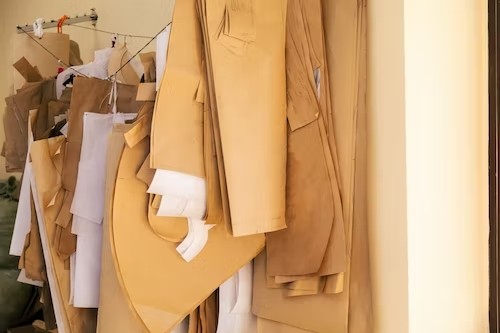
Difficulties adhering to quality standards
Due to the convergence of a myriad of factors, most of Africa’s fashion industries are not sufficiently capacitated to produce while adhering to the industry standards. To meet the quality requirements, a lot of training needs to be provided for workers after being recruited otherwise, the products fall below market requirements.
Limited Supply Chain Management Skills
Africa’s fashion industries lack skills in the areas of sourcing and production, and consequently securing the needed quality and quantities of materials is difficult for most fashion businesses in the industries. This challenge has also been attributed to lack of sector specific training which contributes to entrepreneurs’ limited understanding of the demand volatility and cyclical nature of most fashion products. As such, poor sourcing and supply chain management skills introduce high costs through failure to meet demand in time. Resultantly, it affects the value of products sold.
Skills Mismatch
According to a survey done by CIAFE, 90% of fashion schools in Africa provide fashion design courses only and do not focus on other parts of the fashion value chain. This is against a background of targeting export markets in Europe and the United States of America, where companies prefer doing their fashion design in–house. As such, the skills that the labor force has are not in tandem with the market requirements. For fashion entrepreneurs who have sights on owning their own brands, recruiting a team is also difficult for them because of the low supply of other technical skills required in the fashion business.
Bridging the Skills Gap in Africa’s fashion Industries
Investment in Fashion Education
Africa’s fashion industries are in need of a ‘big push’ type of capital injection. Pouring vast resources in the industries will build competitiveness in numerous ways, which includes making it possible to deliver effective training and capacity building. It will also contribute to value chain development which will ensure that there are backward and forward linkages across the textile and apparel value chain. Such a scenario will motivate training institutions to update their training material to meet the needs of a well-developed domestic value chain, which would have been facilitated by a significant capital injection.
Collaboration between industry, academia and government
Learning institutions should have relationships with market leaders in their domestic fashion industries in order to stay updated on market requirements. In that way, their training material can be forward looking, incorporating the requirements needed along every step of the textile and apparel value chain, with the consideration of the extent to which the country’s value chain is developed. In the same manner, they should also be closely linked to the government to make it easy to garner financial and non-financial support for training in the fashion industry.
Linking the fashion industry with other sectors of the economy
The ministries under which fashion education falls should be closely linked to other ministries such as tourism, art, sports and culture. The connection between the industries needs to open up opportunities for fashion students to design, and manufacture garments for key events hosted by these respective ministries. A move like that will push training institutions to provide skills which enable their students to rise up to the commercial requirements of clothing production, in a bid to fill a gap in a readily available market. With such an increase in market opportunities, the demand for labor and availability of on-job training will also rise.
Organizing market expos
Export markets are a critical source of revenue for Africa’s textile industry. To support the development of skills in Africa’s fashion industries, the government can facilitate opportunities for fashion businesses and training institutions in Africa to interact more with export market leaders. This allows them to have adequate information on the product requirements of export markets and so align their taught skills with the reality of the market.
Source: Fashionomics Africa
Over the last decade, Africa’s fashion industries have come into the spotlight and their potential for powering economic growth and development continues to be evident. The desired development of Africa’s fashion industries also places a demand on countries, to build the capacity to achieve growth. With that in mind, the quantity, and more importantly, the quality of available labor supply becomes a crucial factor for African economies to reap full benefits from their fashion industries. In this week’s edition, we take a look at the current state of skills in Africa’s fashion industries and explore potential remedies.
The Current State of Skills in Africa’s Fashion Industries
Limited competencies
There is a lack of managerial competencies across the labor force available in Africa’s fashion industries. Most workers in these industries are therefore concentrated at the entry level, or floor management. Due to the nature of training opportunities available, there is often a need for substantial training even for line workers. A report on Kenya’s fashion industry noted that the country has the lowest value added per worker, owing to factors such as long change over times i.e. the time required for a line worker to adjust to a new production run.
Limited educational opportunities
Educational opportunities available for aspiring fashion entrepreneurs are quite limited. The African fashion education sector is fragmented, highly informal and lacks regulation. As such, a majority of African fashion schools that are operating are not accredited. They are also characterized by poorly structured curricula, outdated equipment and under qualified instructors. Underinvestment in technical vocational education institutions is also observed, further narrowing down the opportunities of building capacity of African fashion businesses.
Lack of on-job training
Availability of training opportunities is linked to the level of development of the industry and consequently of the economy. A key feature of most African countries is high informality which also speaks to the limited availability of decent and gainful employment opportunities, which are pivotal in providing learning opportunities. Resultantly, on the job training opportunities are not readily available for the development of professionals in the fashion industry.

Difficulties adhering to quality standards
Due to the convergence of a myriad of factors, most of Africa’s fashion industries are not sufficiently capacitated to produce while adhering to the industry standards. To meet the quality requirements, a lot of training needs to be provided for workers after being recruited otherwise, the products fall below market requirements.
Limited Supply Chain Management Skills
Africa’s fashion industries lack skills in the areas of sourcing and production, and consequently securing the needed quality and quantities of materials is difficult for most fashion businesses in the industries. This challenge has also been attributed to lack of sector specific training which contributes to entrepreneurs’ limited understanding of the demand volatility and cyclical nature of most fashion products. As such, poor sourcing and supply chain management skills introduce high costs through failure to meet demand in time. Resultantly, it affects the value of products sold.
Skills Mismatch
According to a survey done by CIAFE, 90% of fashion schools in Africa provide fashion design courses only and do not focus on other parts of the fashion value chain. This is against a background of targeting export markets in Europe and the United States of America, where companies prefer doing their fashion design in–house. As such, the skills that the labor force has are not in tandem with the market requirements. For fashion entrepreneurs who have sights on owning their own brands, recruiting a team is also difficult for them because of the low supply of other technical skills required in the fashion business.
Bridging the Skills Gap in Africa’s fashion Industries
Investment in Fashion Education
Africa’s fashion industries are in need of a ‘big push’ type of capital injection. Pouring vast resources in the industries will build competitiveness in numerous ways, which includes making it possible to deliver effective training and capacity building. It will also contribute to value chain development which will ensure that there are backward and forward linkages across the textile and apparel value chain. Such a scenario will motivate training institutions to update their training material to meet the needs of a well-developed domestic value chain, which would have been facilitated by a significant capital injection.
Collaboration between industry, academia and government
Learning institutions should have relationships with market leaders in their domestic fashion industries in order to stay updated on market requirements. In that way, their training material can be forward looking, incorporating the requirements needed along every step of the textile and apparel value chain, with the consideration of the extent to which the country’s value chain is developed. In the same manner, they should also be closely linked to the government to make it easy to garner financial and non-financial support for training in the fashion industry.
Linking the fashion industry with other sectors of the economy
The ministries under which fashion education falls should be closely linked to other ministries such as tourism, art, sports and culture. The connection between the industries needs to open up opportunities for fashion students to design, and manufacture garments for key events hosted by these respective ministries. A move like that will push training institutions to provide skills which enable their students to rise up to the commercial requirements of clothing production, in a bid to fill a gap in a readily available market. With such an increase in market opportunities, the demand for labor and availability of on-job training will also rise.
Organizing market expos
Export markets are a critical source of revenue for Africa’s textile industry. To support the development of skills in Africa’s fashion industries, the government can facilitate opportunities for fashion businesses and training institutions in Africa to interact more with export market leaders. This allows them to have adequate information on the product requirements of export markets and so align their taught skills with the reality of the market.
Source: Fashionomics Africa
LATEST NEWS
One week to go until Africa Sourcing and Fashion Week 2024: Designers, Exhibitors, and Speakers
01 November 2024 283 hitsOne week to go until Africa Sourcing and Fashion Week 2024: Designers, Exhibitors, and Speakers The countdown has begun for…
9 Years Milestone: Moses Turahirwa and His Moshions Brand Rwanda-Based
25 October 2024 434 hits9 Years Milestone: Moses Turahirwa and His Moshions Brand Rwanda-Based Over the past decade, Rwanda's fashion industry has emerged as…
What to Expect in Lagos Heineken Fashion Week 2024: Runways Kick off Today
23 October 2024 538 hitsWhat to Expect in Lagos Heineken Fashion Week 2024: Runways Kick Off Today The prestigious Heineken Lagos Fashion Week (LagosFW),…
Storytelling Meets High Fashion at The Kenya Fashion Story 2024
23 October 2024 626 hitsStorytelling Meets High Fashion at The Kenya Fashion Story 2024 The convergence of narrative and haute couture takes center stage…
Why Former Model Franco Kabano Is Backing the Stage Fashion Showcase's Founder
23 October 2024 537 hitsWhy Former Model Franco Kabano Is Backing the Stage Fashion Showcase's Founder In Rwanda's fashion industry, Franco Kabano and Sandrine…
The Stage Fashion Showcase 2024 Pre-Event Highlights Emerging and Established Talents: Main Event Set for November 1
20 October 2024 517 hitsThe Stage Fashion Showcase 2024 Pre-Event Highlights Emerging and Established Talents: Main Event Set for November 1 The fashion scene…
FASHION SHOPS
